Hello and welcome to Work Week, the podcast where we answer one pressing question about the future of work, discuss timely research about the trend, and explain what it all means for you.
I’m Dr. Kelly Monahan, Managing Director of the Upwork Research Institute, and as always, what you’re hearing is a digital proxy of my voice that was created by our team with the help of AI.
Amid widespread adoption and rapid advancement of artificial intelligence, we’re in the middle of a workplace revolution—one that some are calling the most significant shift in knowledge work since the advent of the internet.
Which leads us to this week’s driving question: How can business leaders and knowledge workers prepare for a future in which AI agents become part of every team, role, and decision?
In addition to releasing our own research, my team at the Upwork Research Institute is always keeping a pulse on the latest third-party data related to the future of work. My inspiration for this episode was a recent report from Microsoft, The 2025 Annual Work Trend Index, which featured insights from thirty-one thousand full-time employed or self-employed knowledge workers.
According to the survey, eighty-two percent of global business leaders say 2025 is a pivotal year to rethink core aspects of strategy and operations. Why? Because we’ve entered what Microsoft is calling a new reality, “intelligence on tap,” that is being driven by widespread adoption and availability of AI.
Organizations are no longer talking about AI as nice to have or as a side project. AI is a central lever for performance, innovation, and growth.
But what makes this moment especially critical is that it’s not only about adding tools to existing workflows. It’s also about rethinking the very DNA of how organizations are designed and how work gets done.
Let’s unpack what the data says—and why this shift requires each of us to become what Microsoft calls an “agent boss.”
As the world of work, as well as business needs, continue to evolve, many organizations are facing a similar challenge: the gap is growing between what businesses need and what people can realistically deliver.
In Microsoft’s survey, eighty percent of the workers who responded report lacking the time or energy to do their job, even as fifty-three percent of leaders say productivity must increase.
And closing that gap isn’t about squeezing more out of people. As we discussed in episode twelve of Work Week, “What Are Mini-Retirements and Can They Help Employee Burnout?” Upwork research conducted in 2024 found that sixty-five percent of full-time employees said they were struggling with employer demands on their productivity. The same survey found that eighty-one percent of global C-suite leaders acknowledge they have increased demands on workers in the past year.
Rather than requiring workers to spread themselves too thin—and risk burnout—businesses can close this gap by augmenting people with AI—expanding teams not only by hiring more humans, but also by adding digital labor. In fact, the Microsoft research found that eighty-two percent of leaders expect to expand their workforce using AI agents in the next twelve to eighteen months.
Rather than replacing human workers, these AI agents will augment people and free up workers from routine tasks, empowering teams to work more strategically and creatively.
In most companies today, the organizational chart looks the same as it did decades ago—static, hierarchical, and functionally siloed.
Instead of fixed hierarchies, forward-thinking organizational charts are more dynamic. They flex based on outcomes, drawing on the right mix of human skills and AI agents to get the job done.
According to the Microsoft report, forty-six percent of business leaders say their organization is already using AI agents to fully automate workflows or processes. And the top three functions receiving the most investment? Customer service, marketing, and product development.
This shift raises a critical question for every leader: What’s the right human-to-agent ratio?
Should you have one AI agent for every customer service representative? Every account manager? Every analyst?
There’s no universally correct answer. This is a task-specific, outcome-driven design challenge.
When considering how to use AI agents at your organization, you need to ask questions such as,
Where do humans outperform AI?
Where is AI more reliable, faster, or more scalable?
When do customers demand a human touch?
When does society require accountability that only people can provide?
The organizations that get the balance between humans and AI agents right will redefine performance in the years ahead.
But to do that, every worker—not only leaders—needs to learn how to manage AI agents.
When we talk about the AI transformation of work, there’s a common misconception: that AI will be managed by IT departments or implemented for frontline employees. But the reality is more nuanced—and more exciting.
Data shows that what is emerging is a future in which every worker is responsible for one or more AI agents. Workers in nearly every sector and role will need to know how to deploy, delegate to, and refine AI agents to achieve better results.
This isn't about every employee becoming a coder or a data scientist. It's about industries rethinking the relationship between their workforce and productivity. Instead of doing everything themselves, workers will orchestrate a combination of human and digital effort. They’ll need to identify the best-fit task for an AI to take on, setting that AI up for success, and critically reviewing its output. And they’ll also need to know where to draw the line and do the work themselves.
But here's the catch: while technical skills are more important than ever, being an agent boss also requires a uniquely human skillset.
According to our Future Workforce Index, the real differentiators in an AI-enabled workplace won’t be technical know-how. In fact, the most valuable skills in this new era are deeply, fundamentally human—the competencies AI can’t replicate.
We’re talking about skills such as creative problem-solving, adaptability, clear communication, and critical thinking.
Interestingly, the Future Workforce Index shows that skilled freelancers, who already operate in dynamic, tech-enabled environments, outpace full-time employees across nearly every one of these human-centric skills.
These are the capabilities that will make or break success in an AI-first workplace—which requires both using AI tools and also making sure they deliver value.
So, what does this mean for workforce development at your organization?
It means, instead of being intimidated by or resisting AI, leaders should think of, and encourage workers to think of, AI as an exciting opportunity. And it means that it’s time to at least start experimenting. Ask workers to apply their uniquely human skills such as judgment, empathy, and creativity to elevate what AI tools can do on their own.
In this sense, becoming an “agent boss” isn’t about replacing roles—it’s about expanding the potential of the individuals in your workforce, as well as the potential of your business.
As a leader, your job isn’t to simply train your teams to prompt a model or use a new dashboard. It’s to help them grow into this hybrid role—part subject-matter expert, part team leader, part digital conductor.
Here’s something I want you to sit with for a moment: in every major technological shift—from the steam engine to the internet—the biggest changes aren’t just technological. They’re behavioral and organizational.
That’s where we are with AI.
Yes, the tech is improving rapidly. But the deeper shift is happening inside organizations, inside teams, and inside the mindset of individual workers. And those who adapt first—not just to the tools, but to the way work is changing—will have a serious advantage.
We’re already seeing that advantage play out in the talent market. While headlines often focus on layoffs or automation risks, I see a different story: one of reinvention and rapid opportunity.
Top talent is flowing toward companies that treat AI not as a threat, but as a partner. Freelancers and independent professionals are often early adopters of new tools. Our Future Workforce Index research also found that fifty-four percent of skilled freelancers report advanced or expert level skill in using AI tools for work, compared to thirty-eight percent of skilled full-time employees. They’re running agent-powered solo businesses, automating client onboarding, streamlining research, and accelerating project delivery.
And it’s not just the tools they’re using—it’s the mindset they bring.
As the Future Workforce Index shows, freelancers consistently report stronger collaborative skills than their full-time counterparts. But these skills do more than help freelancers work with teams. They are also critical to effectively collaborating with AI agents. That means companies looking to gain a competitive advantage by building agent-powered teams would benefit from engaging freelancers who have already embraced this way of working.
Now, let’s talk about culture—because here’s where many companies miss the mark.
If you’re layering AI on top of rigid, outdated processes, you’re not transforming. You’re digitizing dysfunction. True transformation means rethinking how teams form, how decisions are made, and how performance is measured.
It means creating a culture of learning in which people have room to experiment with AI—and not punishing early failures. It means shifting from output metrics to outcome metrics, where success is defined by value created, not hours logged. And it means building a culture in which human and digital labor are both seen as essential—not competitive.
This cultural shift is going to be harder than downloading a tool. But it’s also likely among the most important work you’ll do as a leader over the next five years.
Because AI shouldn’t replace employees or companies. But companies that fail to integrate AI—and empower their people to lead it—might find themselves replaced.
As we do on every episode of Work Week, I want to wrap up with an action item and a reflection question based on this week’s topic.
For our action for leaders: Start small. Choose one key workflow or business process—whether it's client onboarding, performance reporting, or social media content creation. Map out the workflow in detail. Then ask: Which parts of this process could be handed off to an AI agent? What should remain squarely in human hands? Finally, identify any gaps in your team's readiness to make that collaboration successful—and make a plan to close them.
If you’re an independent professional or employee, think about your list of tasks or skills for a given project. Which tasks should you continue to handle on your own versus delegating to an AI agent? And how can you use your uniquely human skills—such as collaboration and critical thinking—to successfully collaborate with AI agents?
And for this week’s reflection question, ask yourself: If AI agents joined your team tomorrow, would you be prepared to lead them? Would your team be ready to collaborate with them? Take a moment to reflect on how your role, your skillset, your mindset, and your company culture would need to evolve to not just survive—but thrive—in the age of agent bosses.
That’s all we have for this episode of Work Week. I’m Kelly Monahan and this week, we asked the question: Is your workforce prepared to manage AI agents?
Thank you for listening! If you found this episode informative, please share with a colleague or friend. And don’t forget to subscribe for weekly data-backed insights on the future of work.







.png)
.png)
.png)
.png)
.png)



.png)

-p-500.jpg.png)

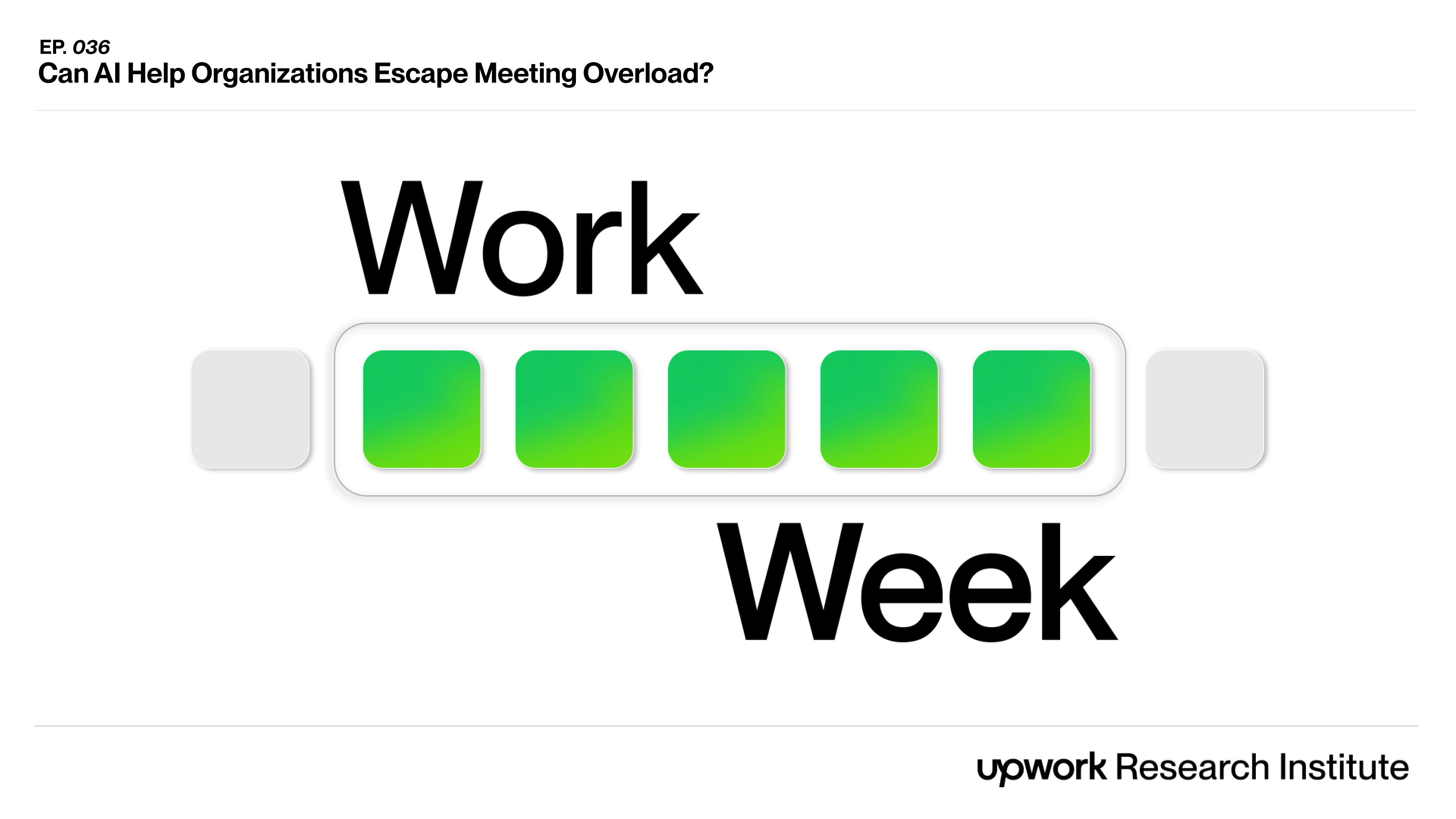

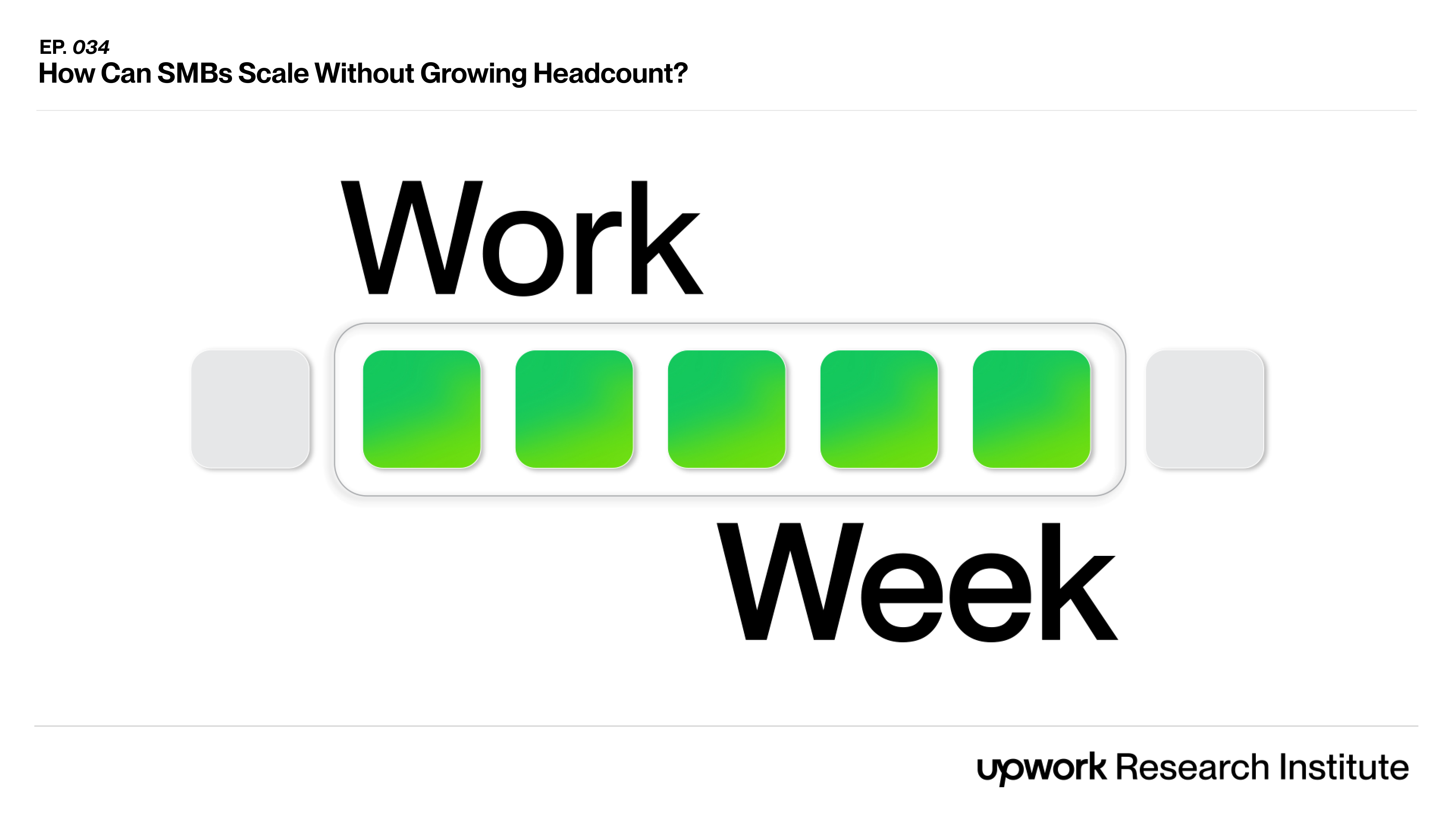
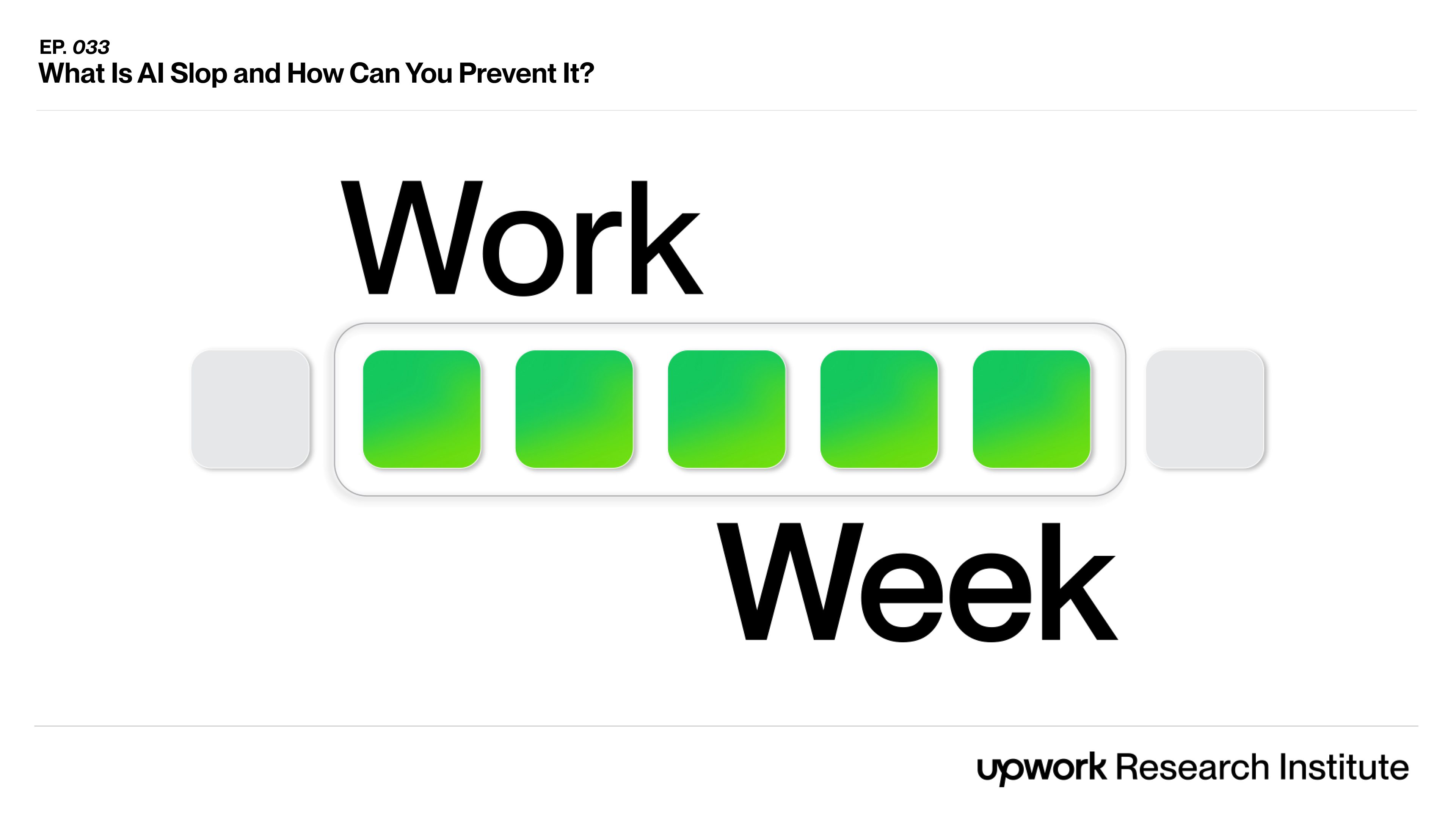
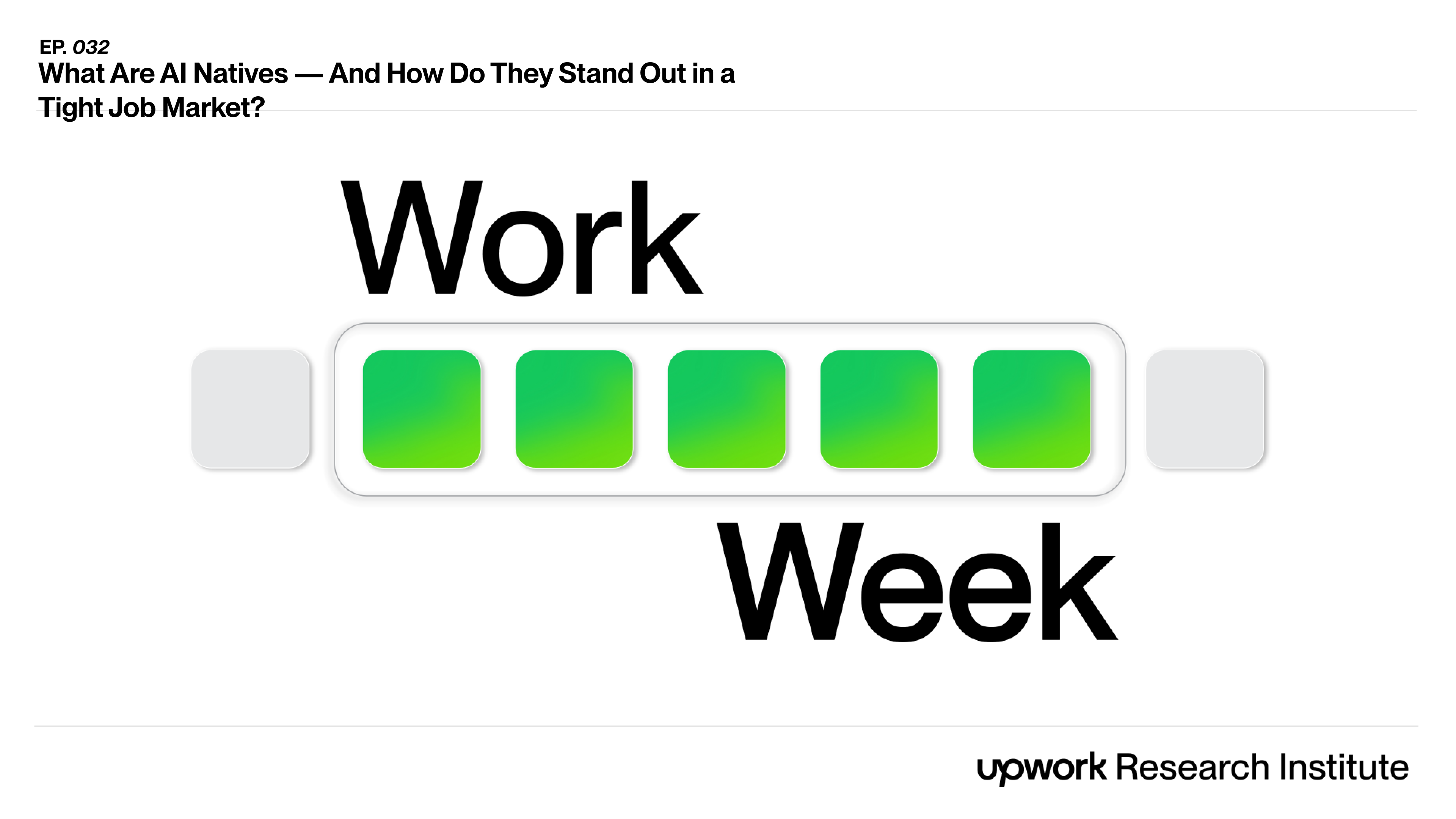
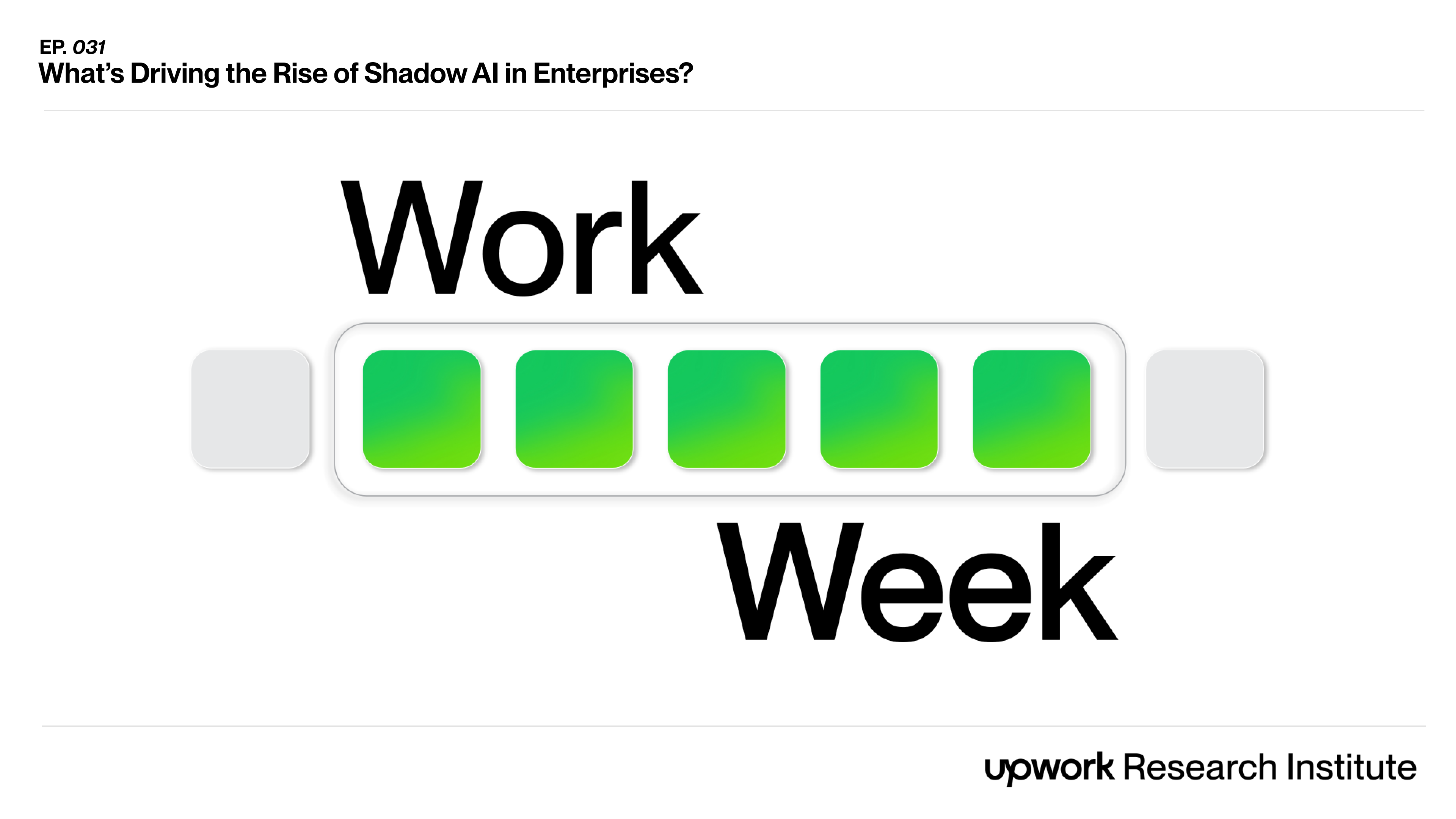
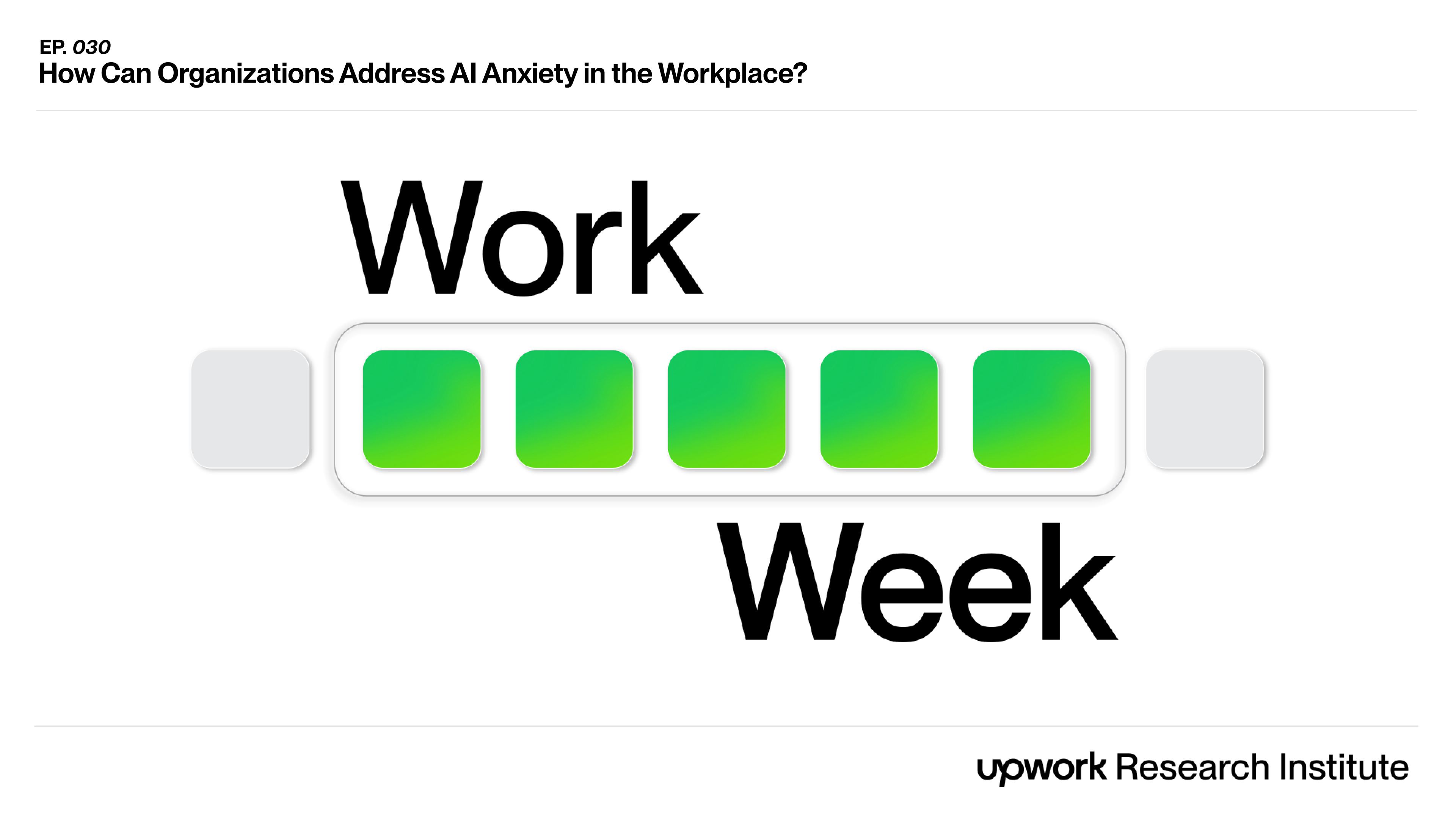
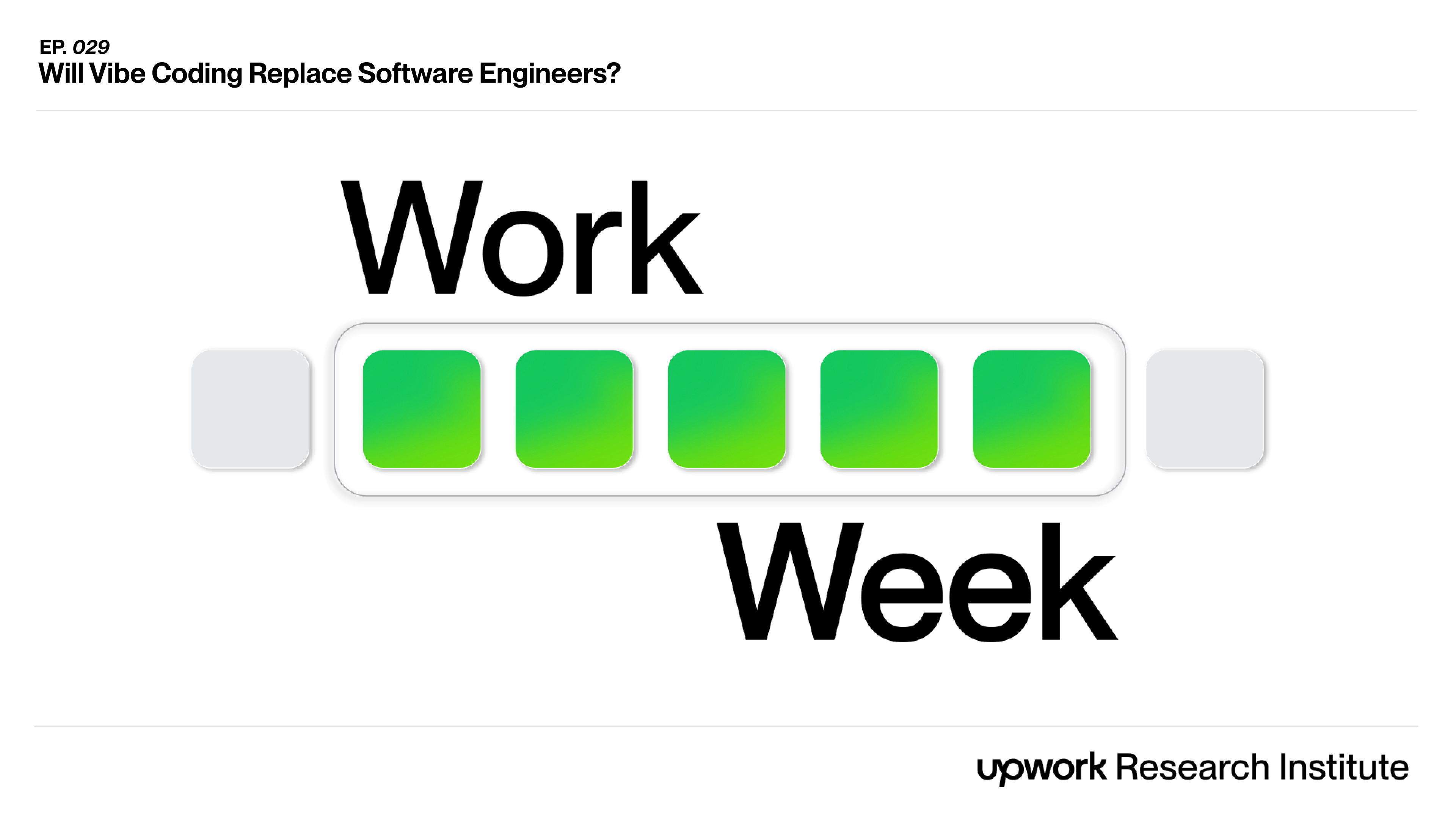
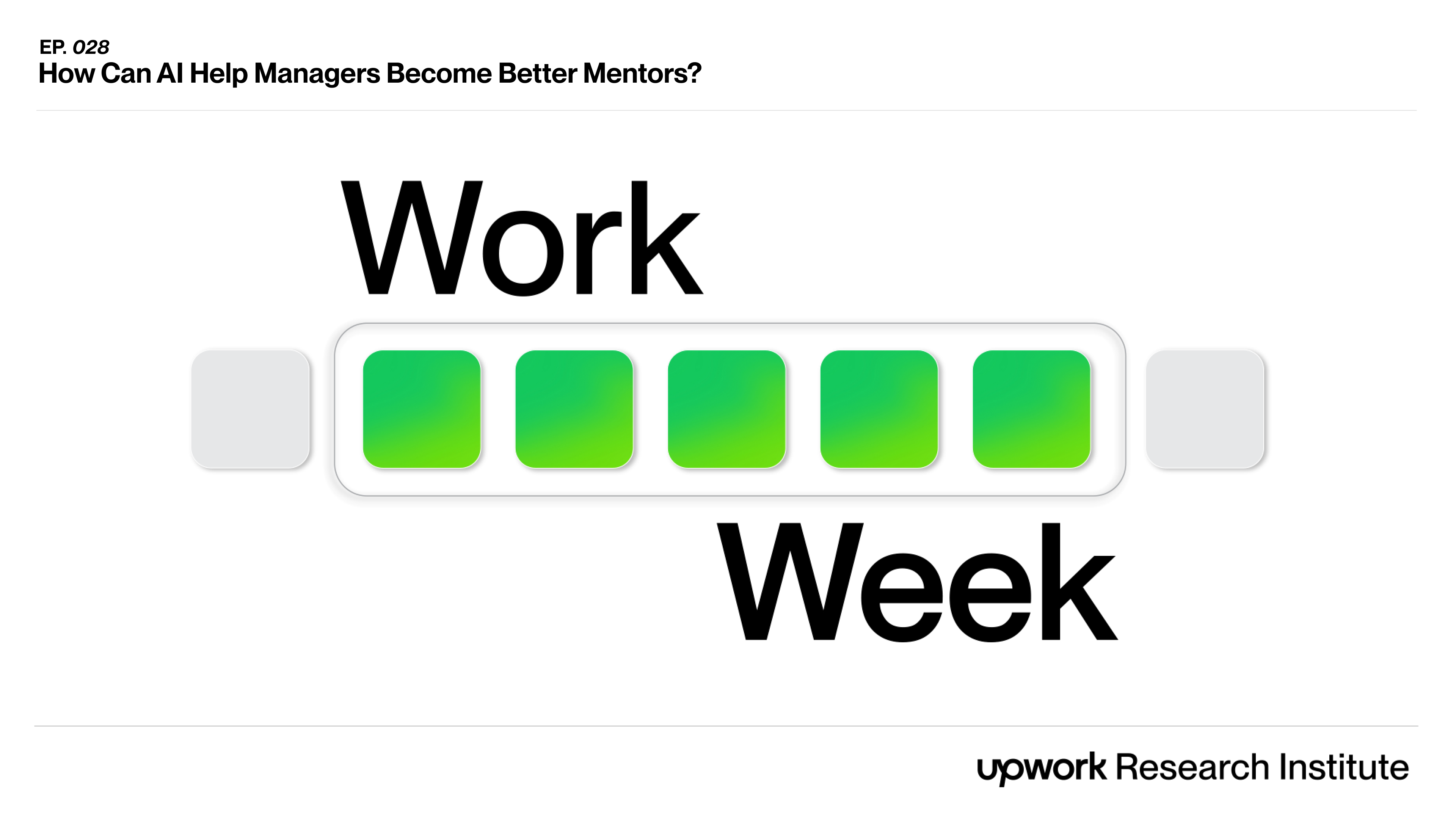

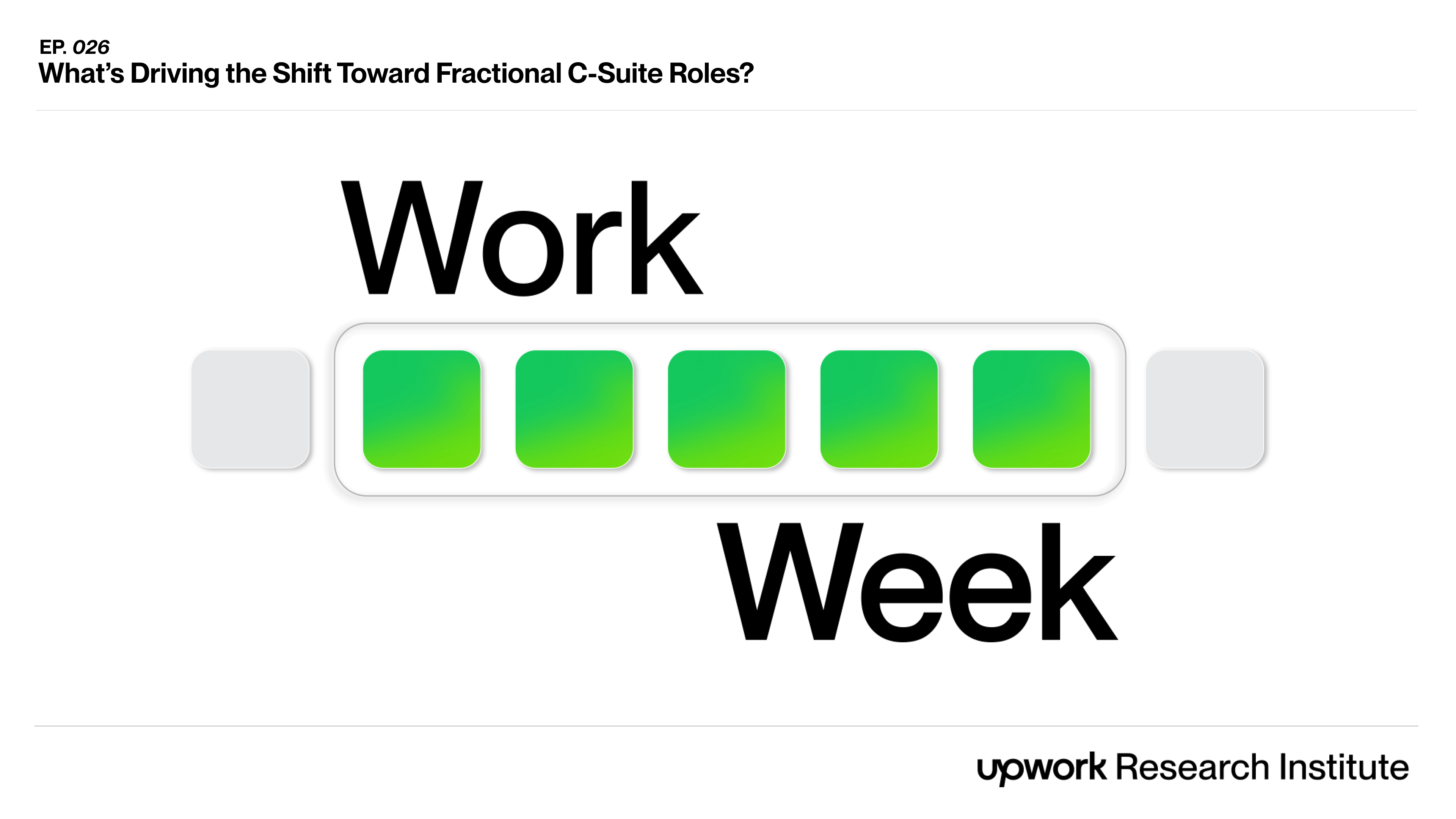
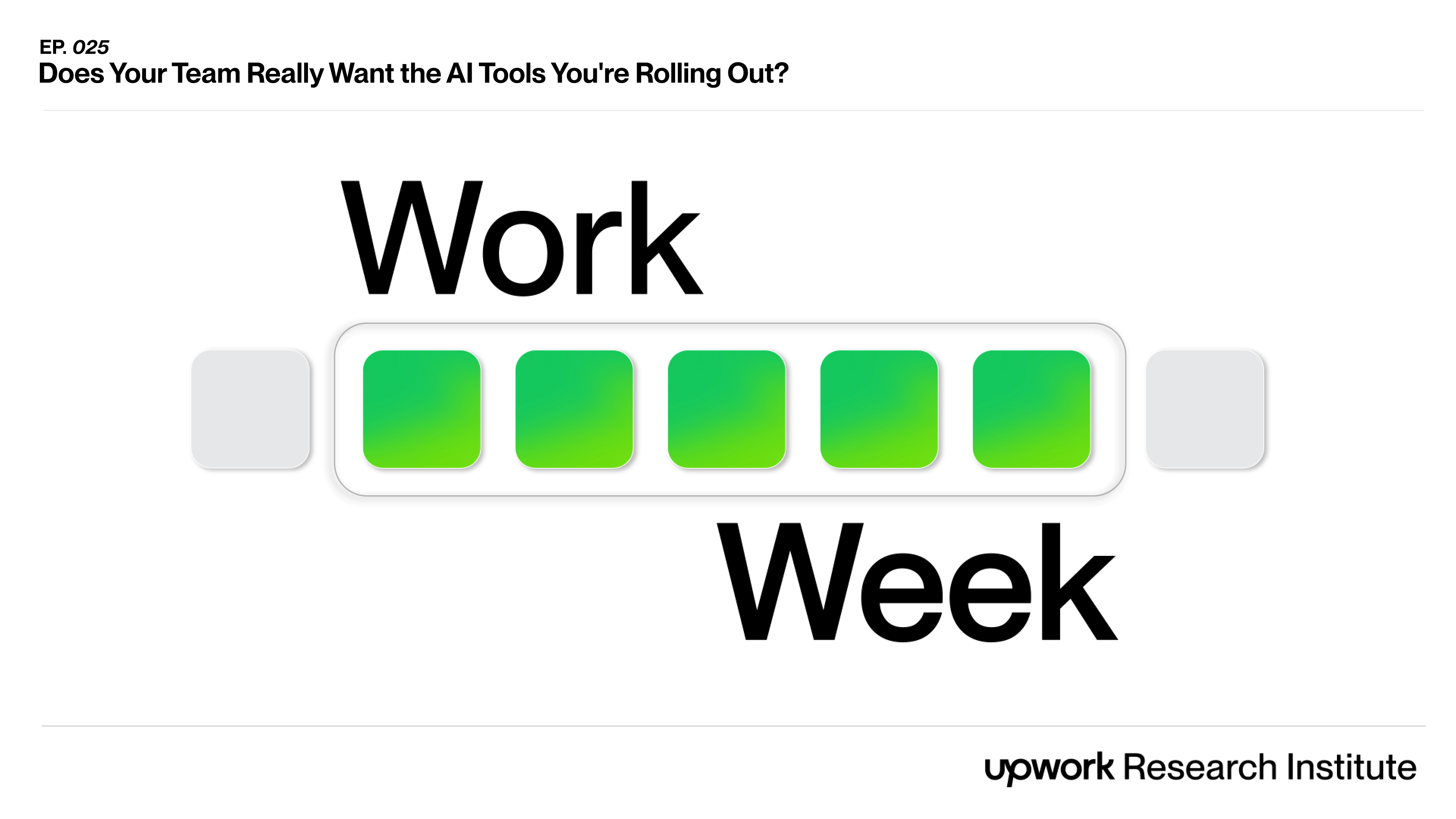
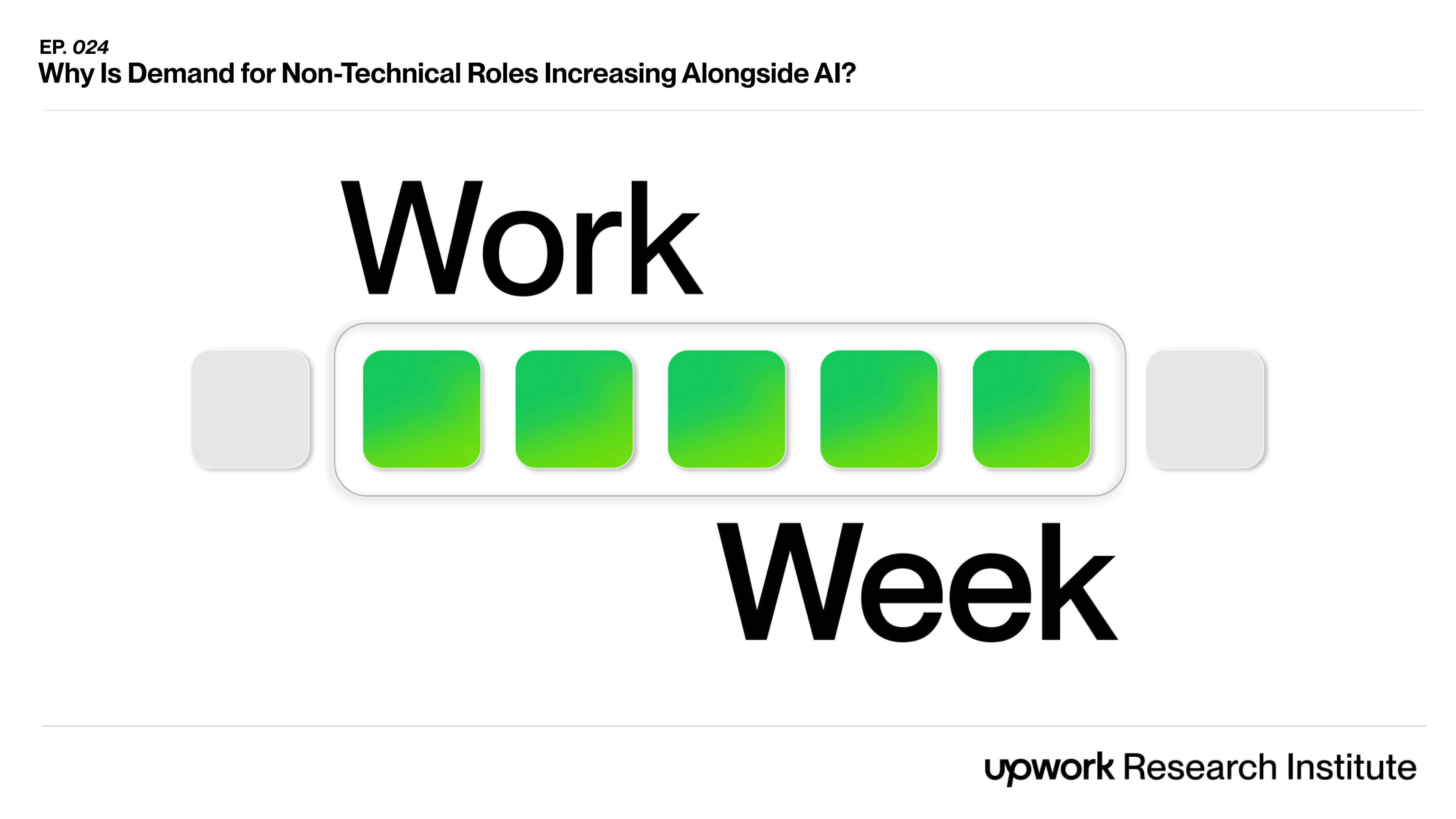
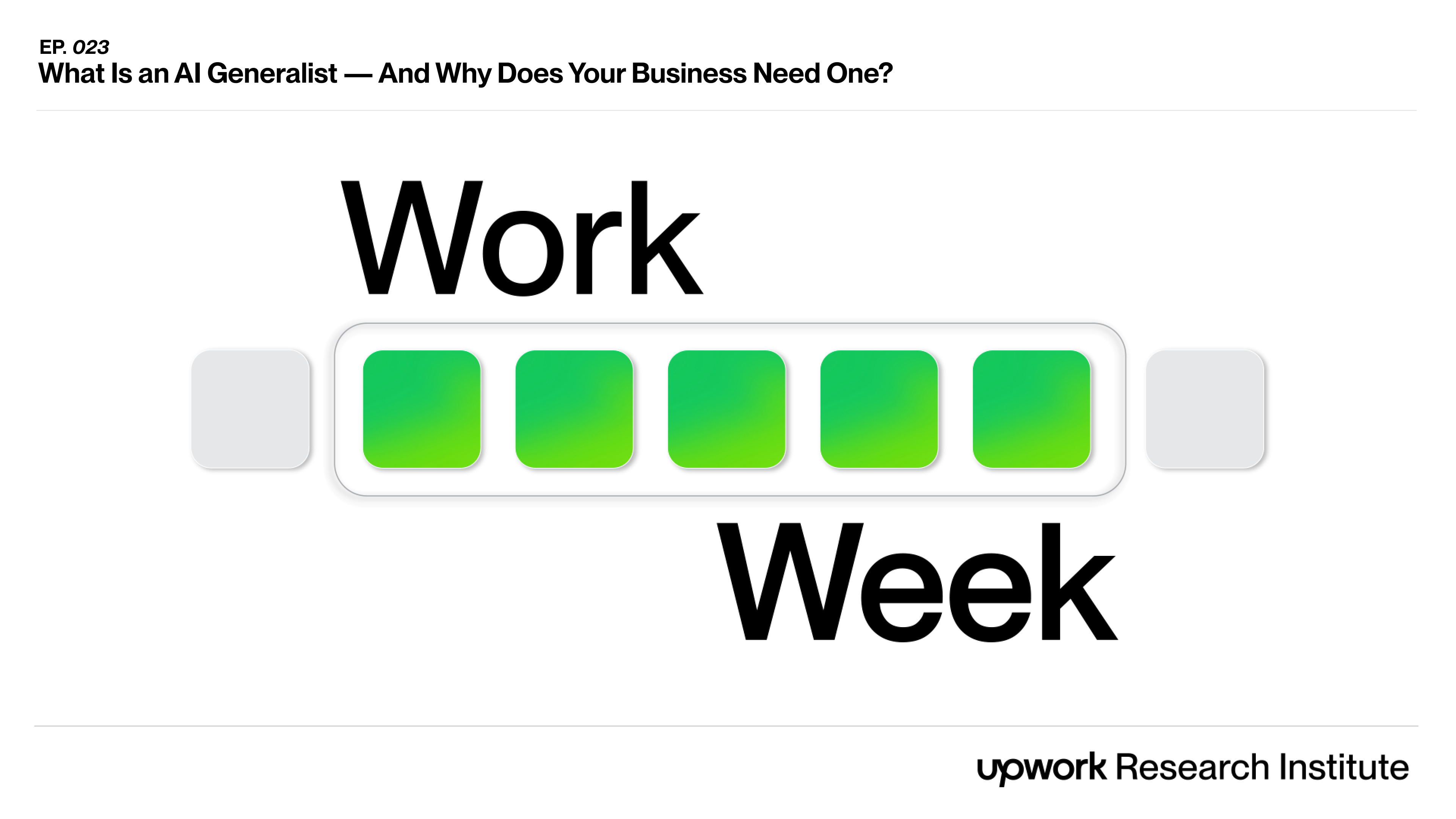
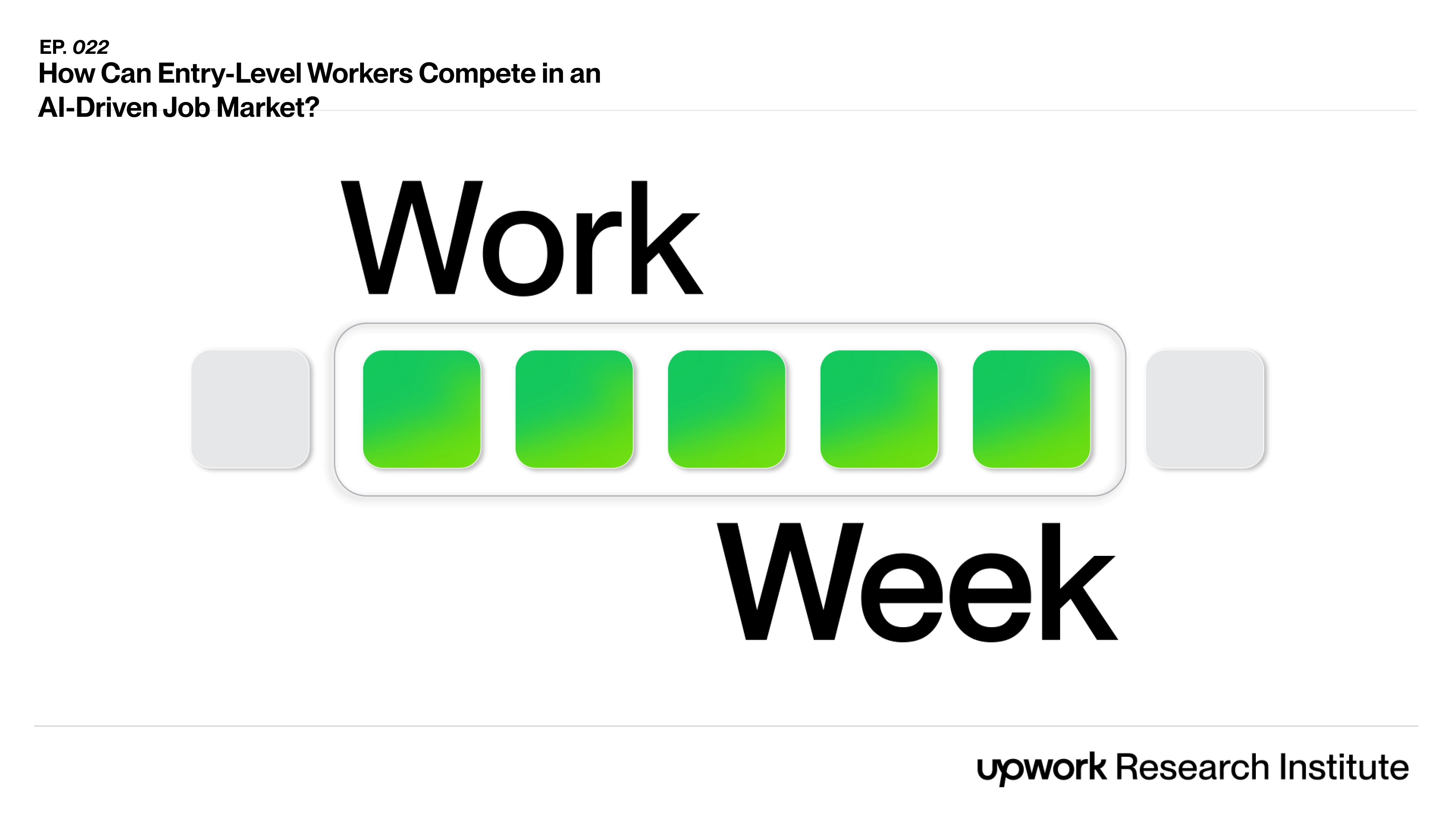

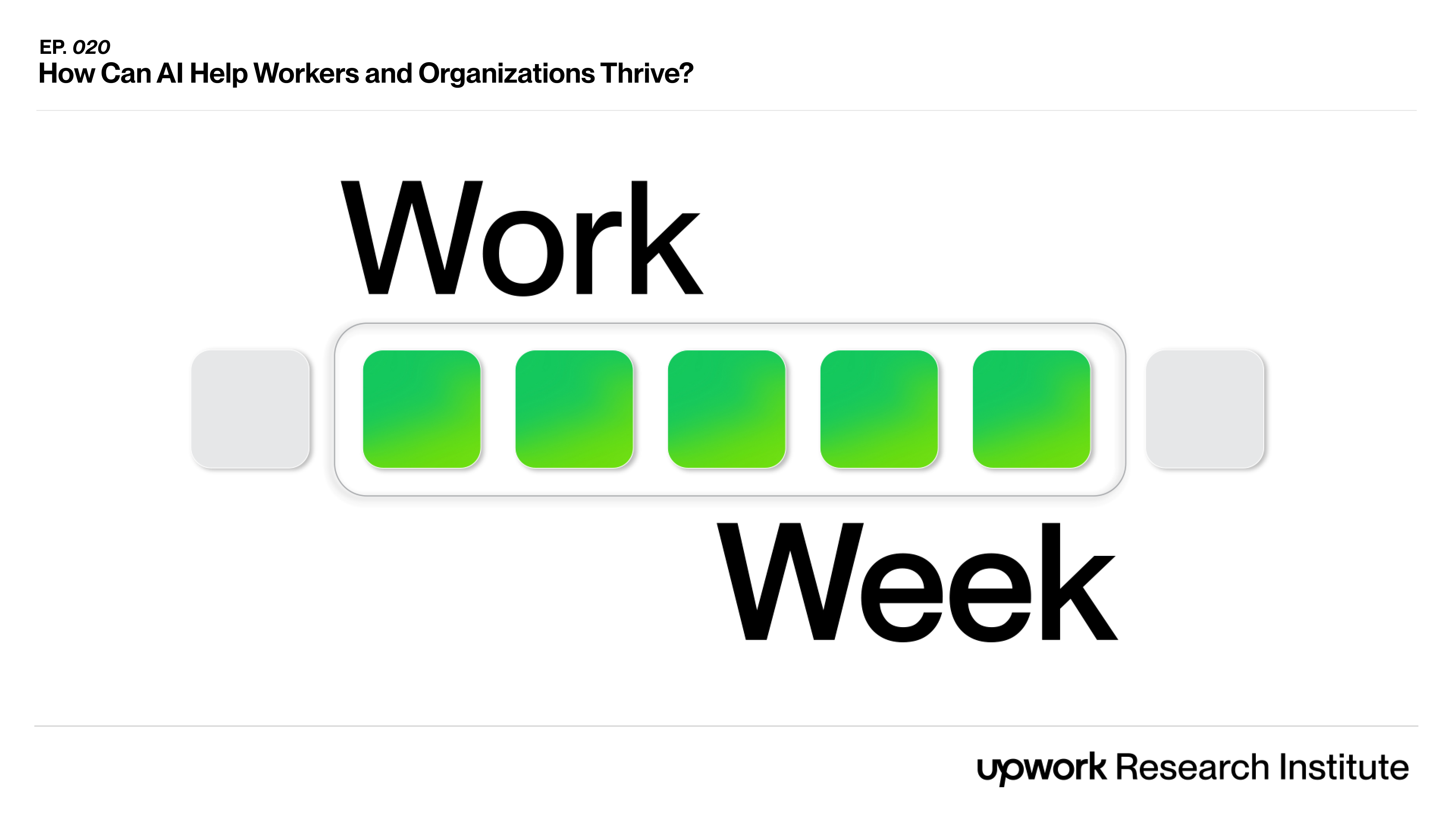
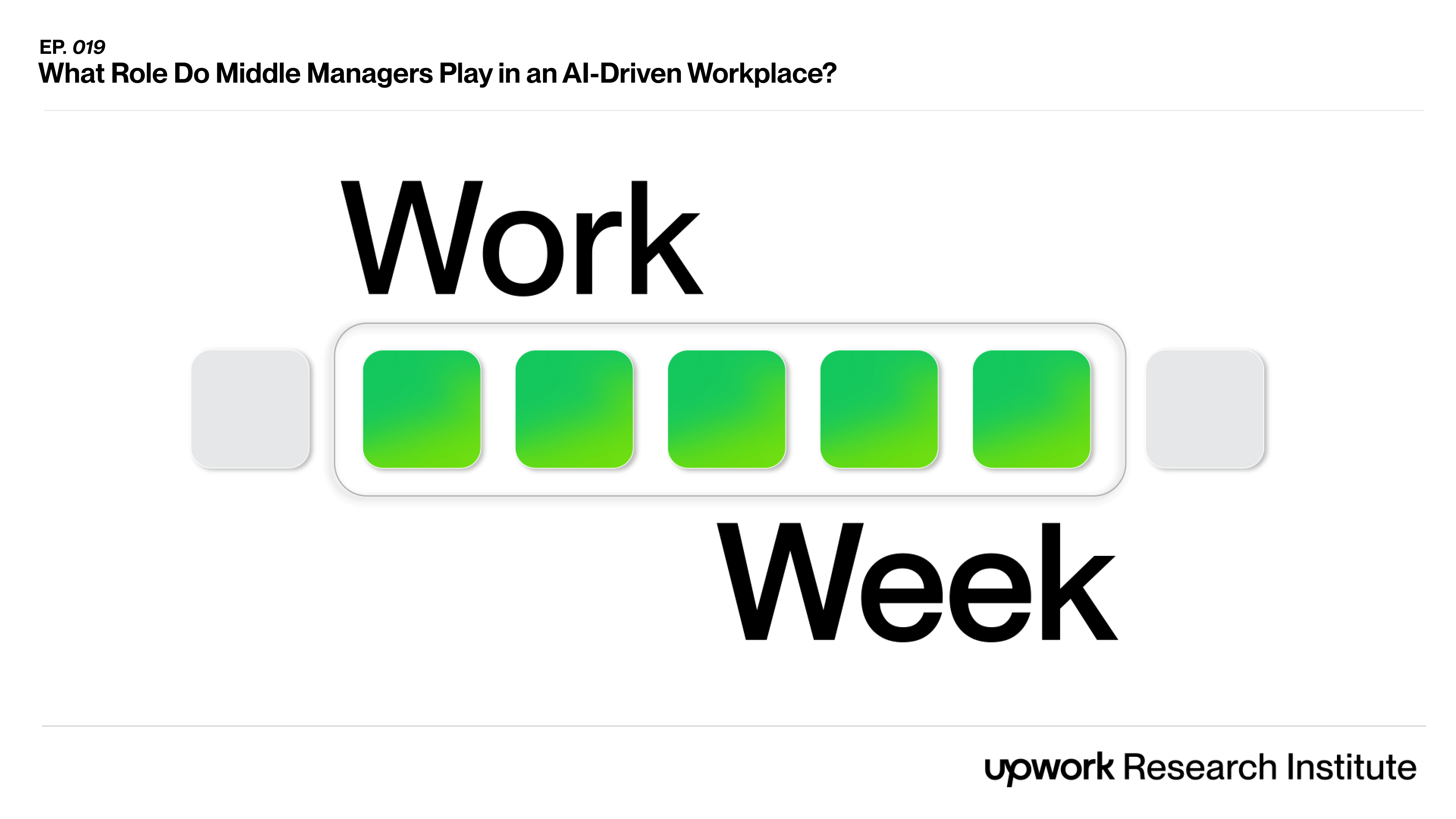
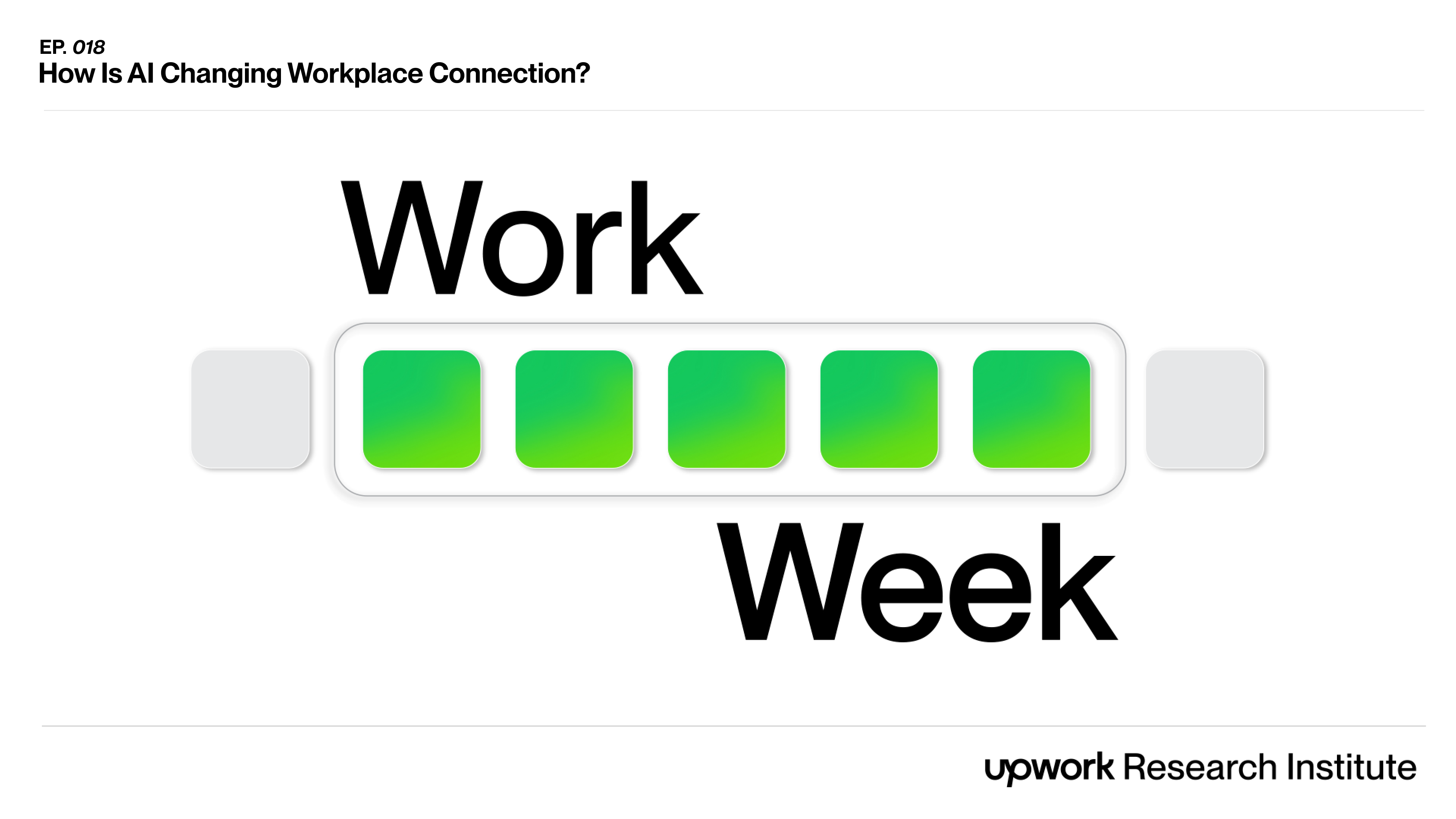

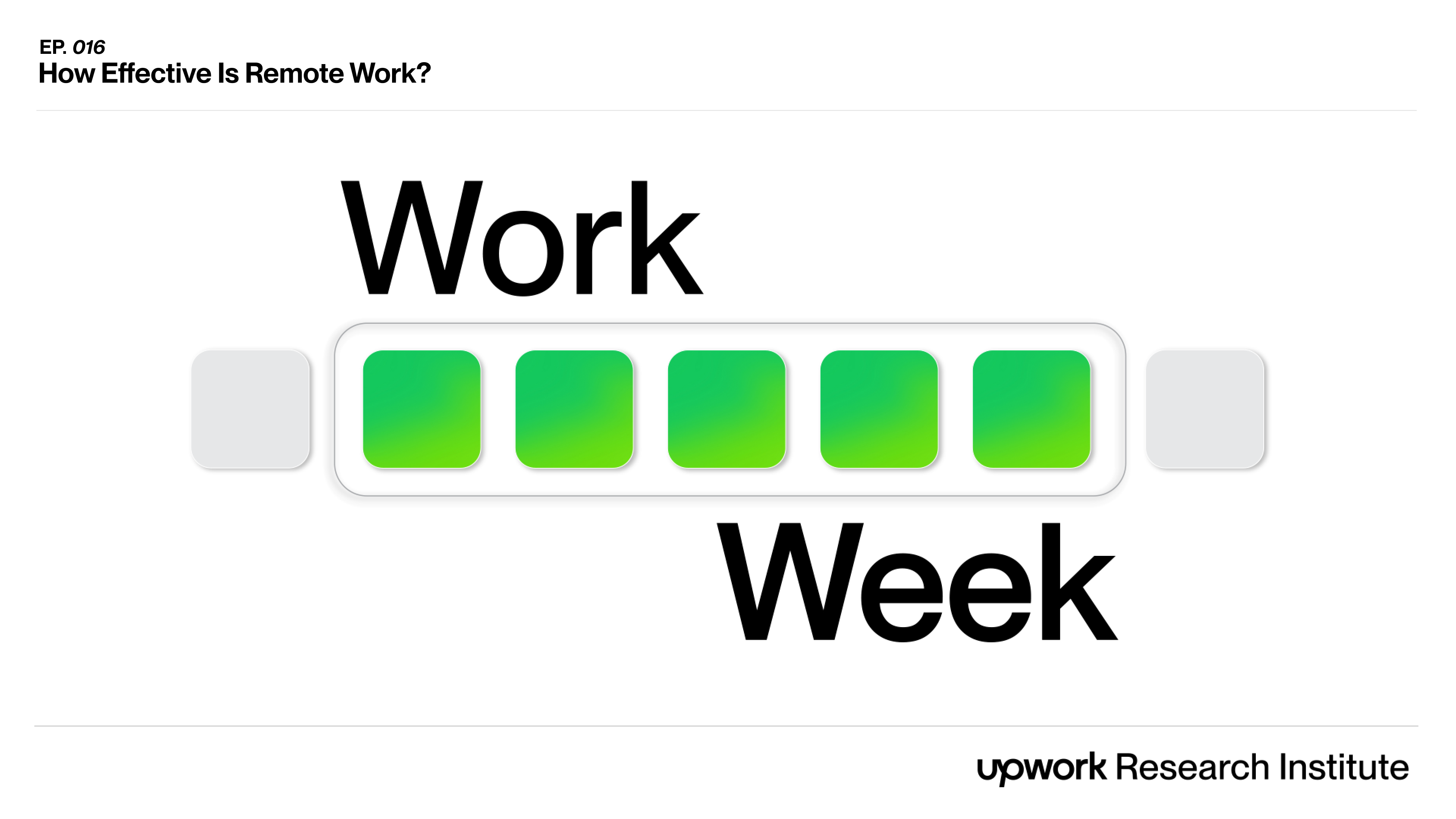
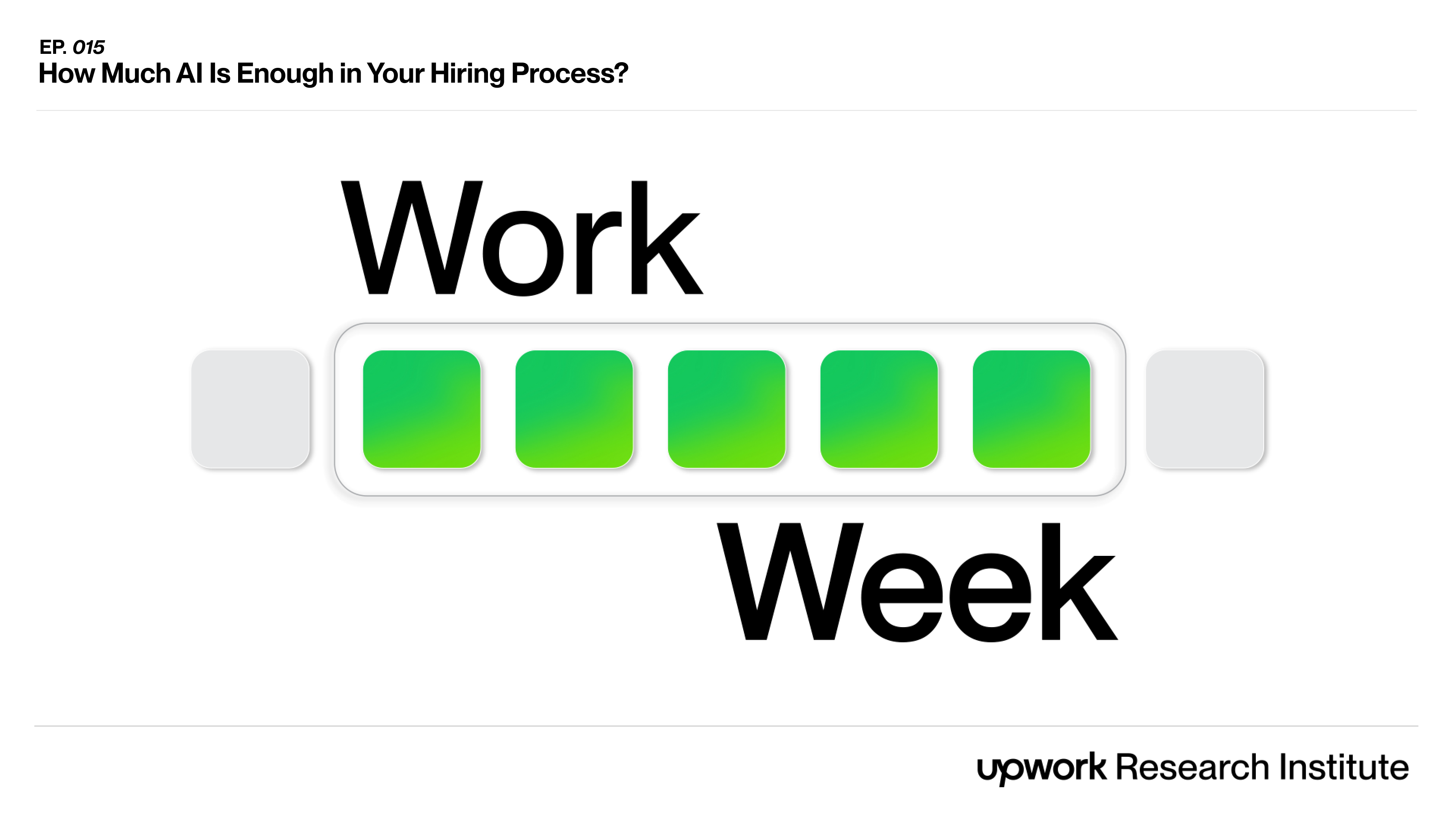
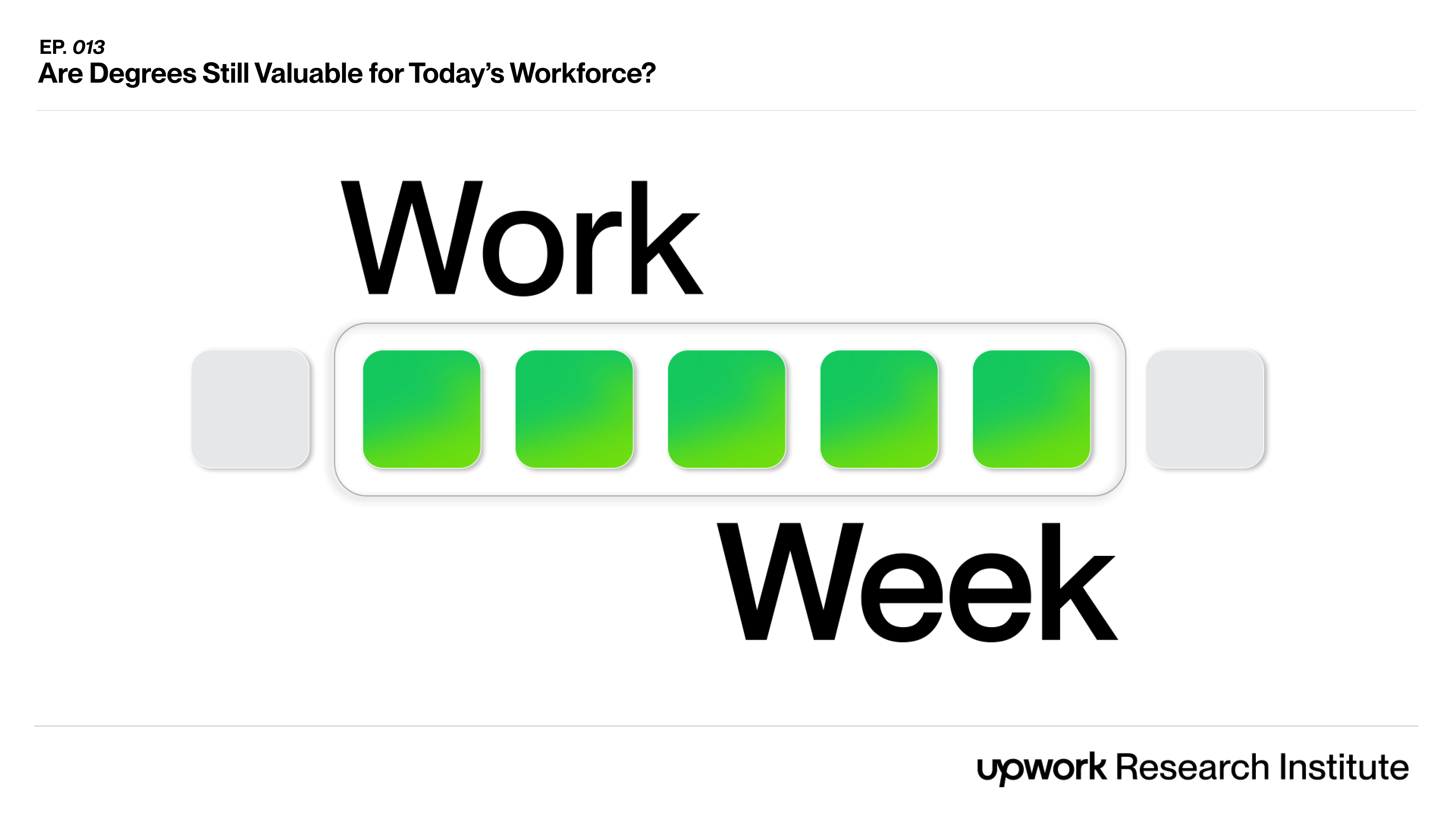
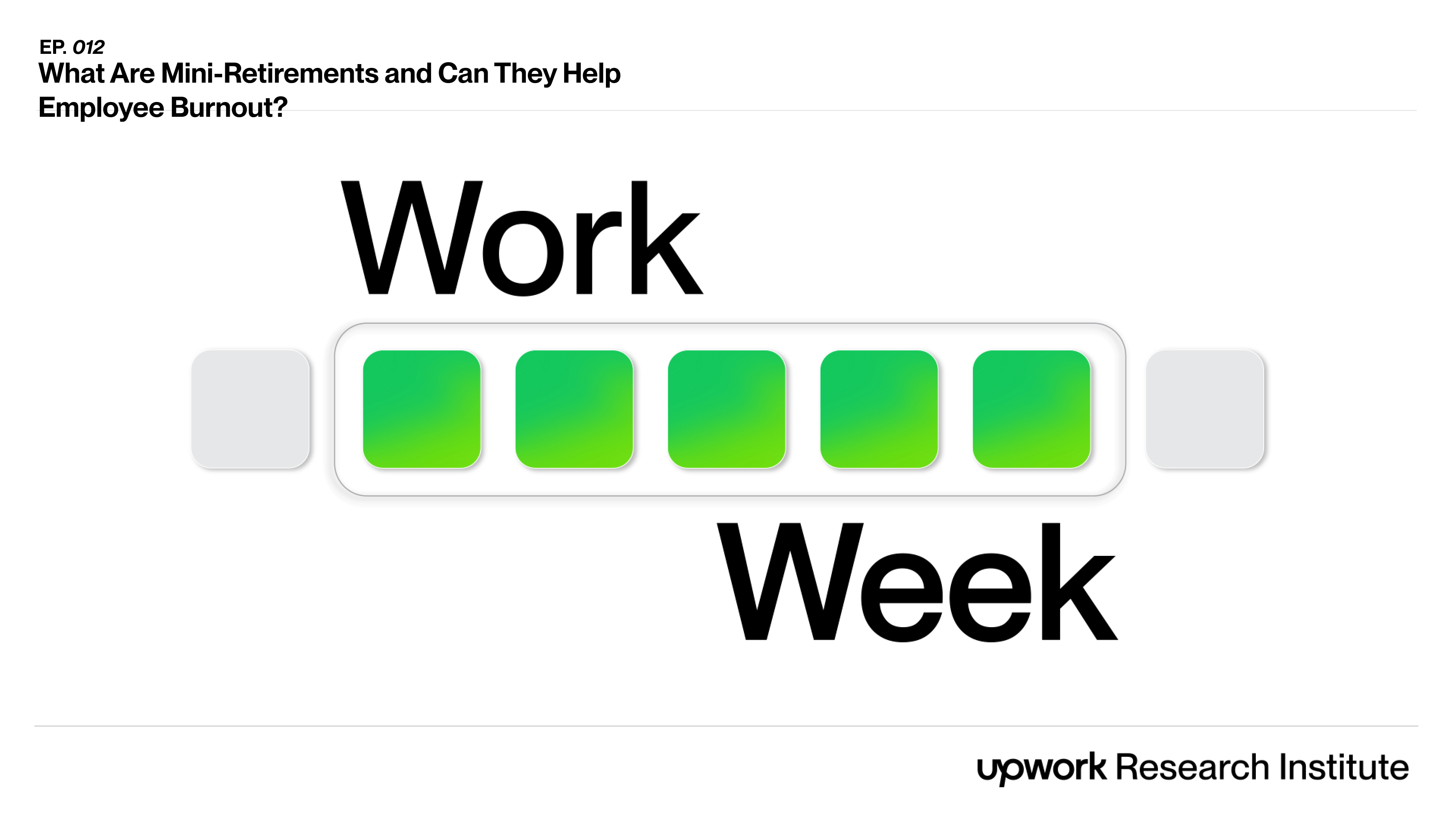
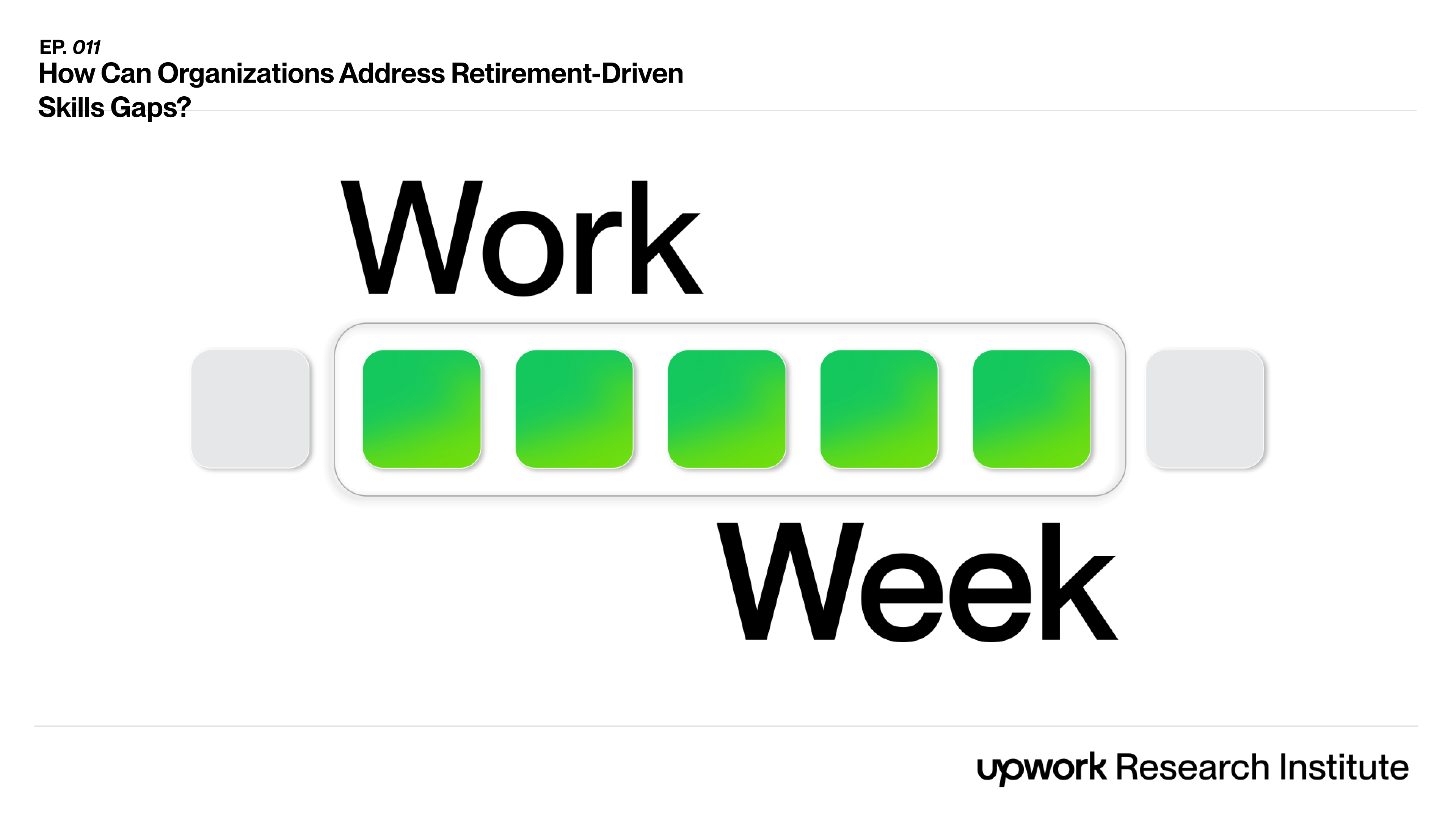
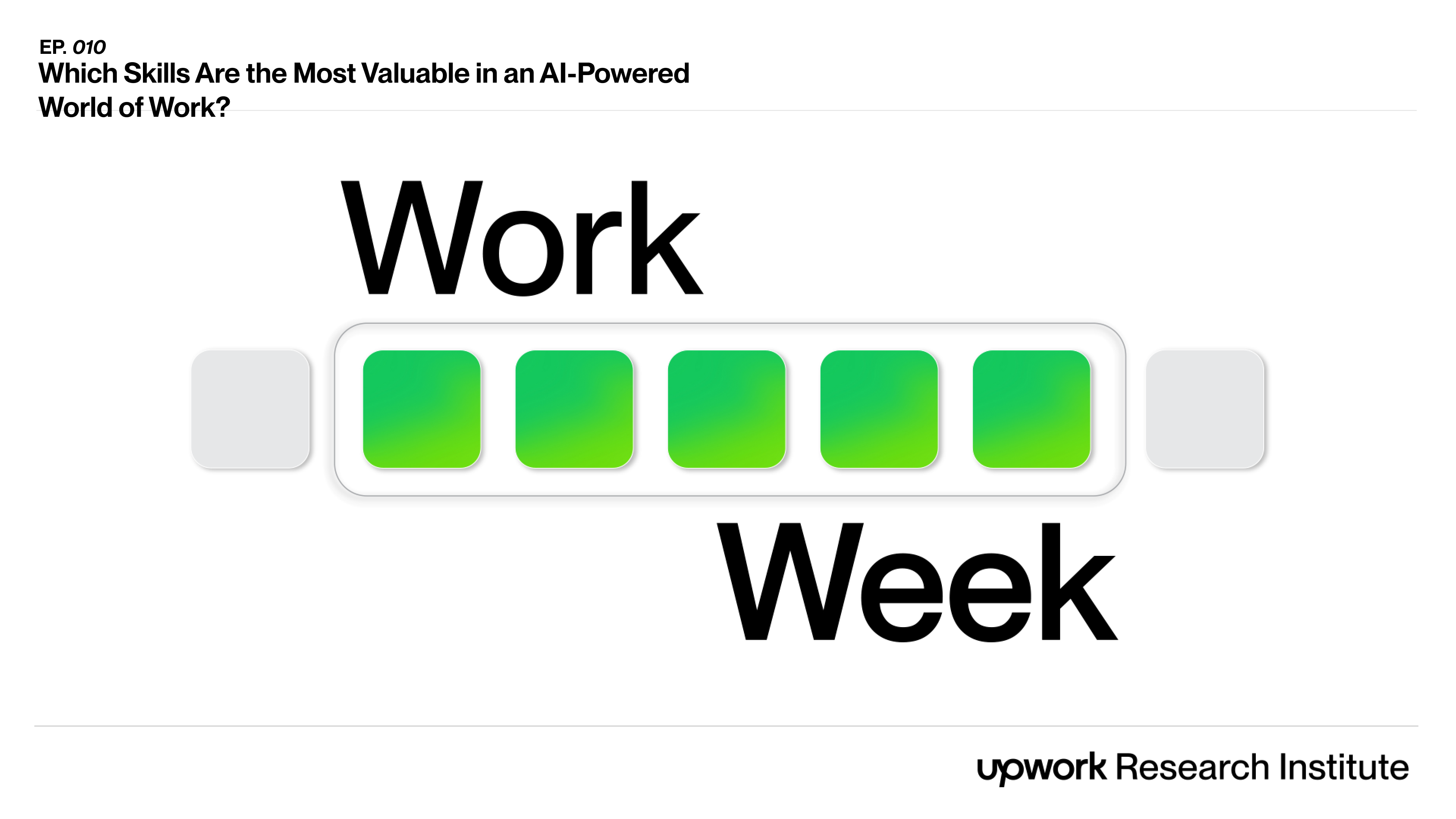
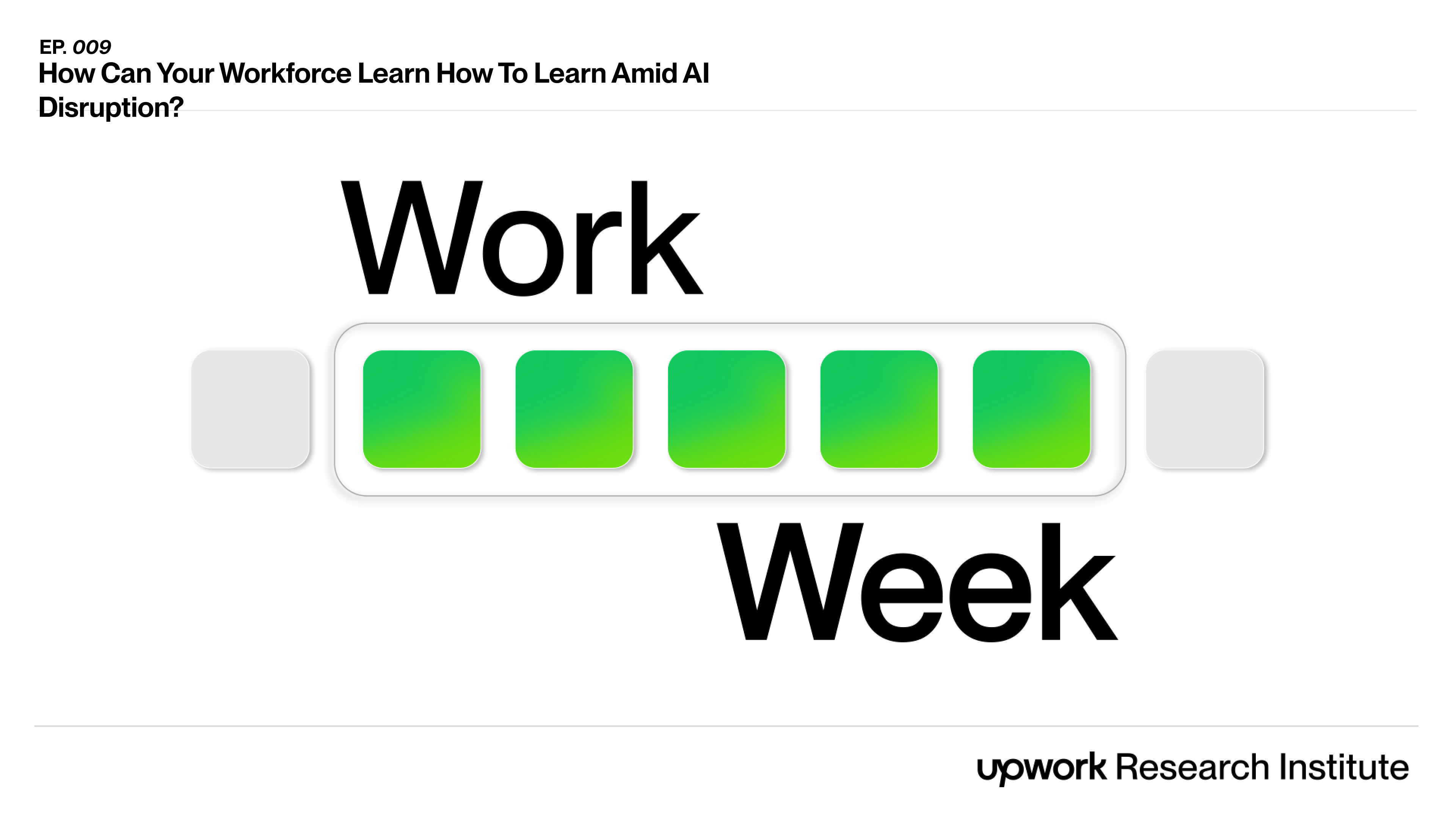
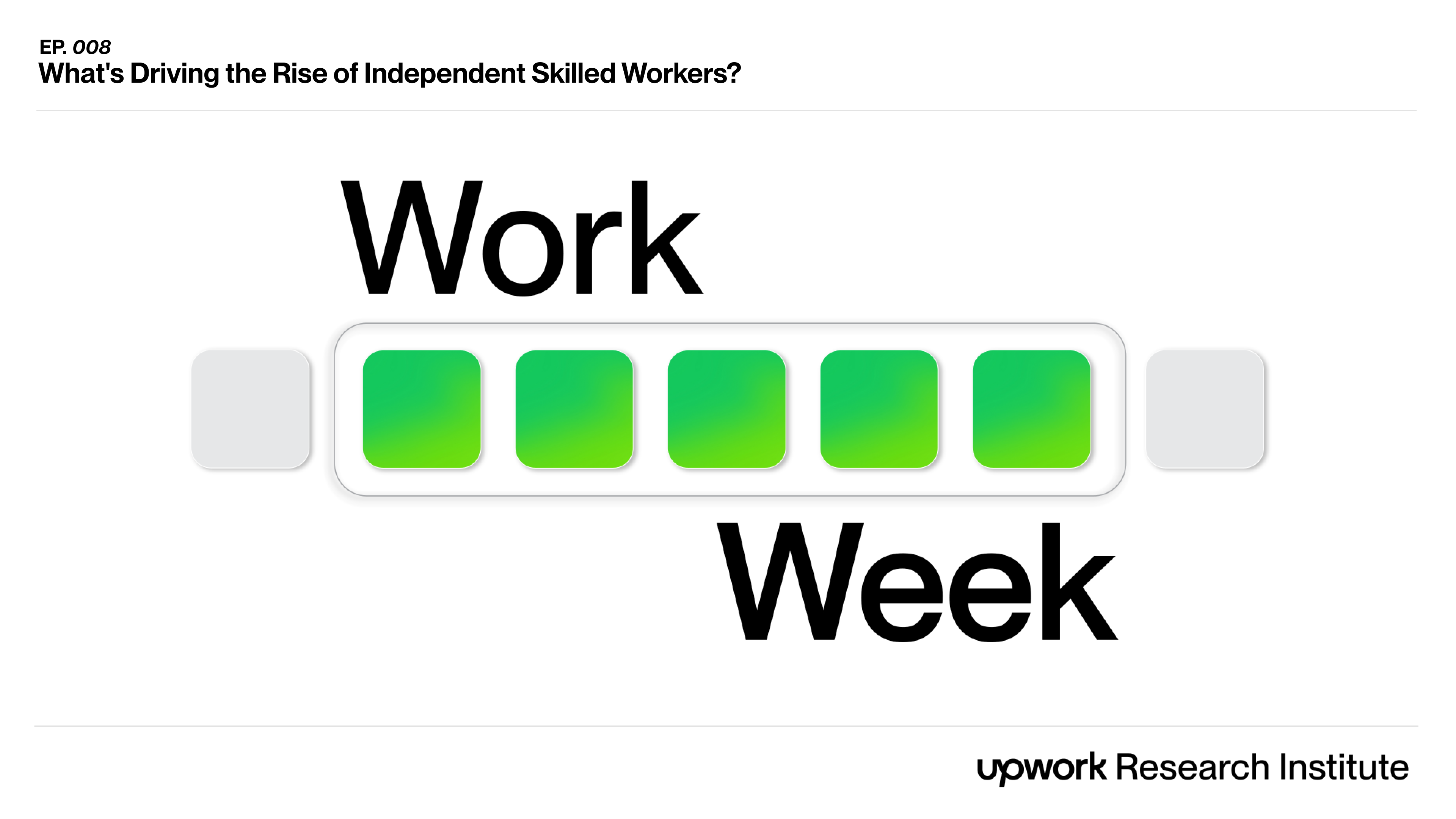
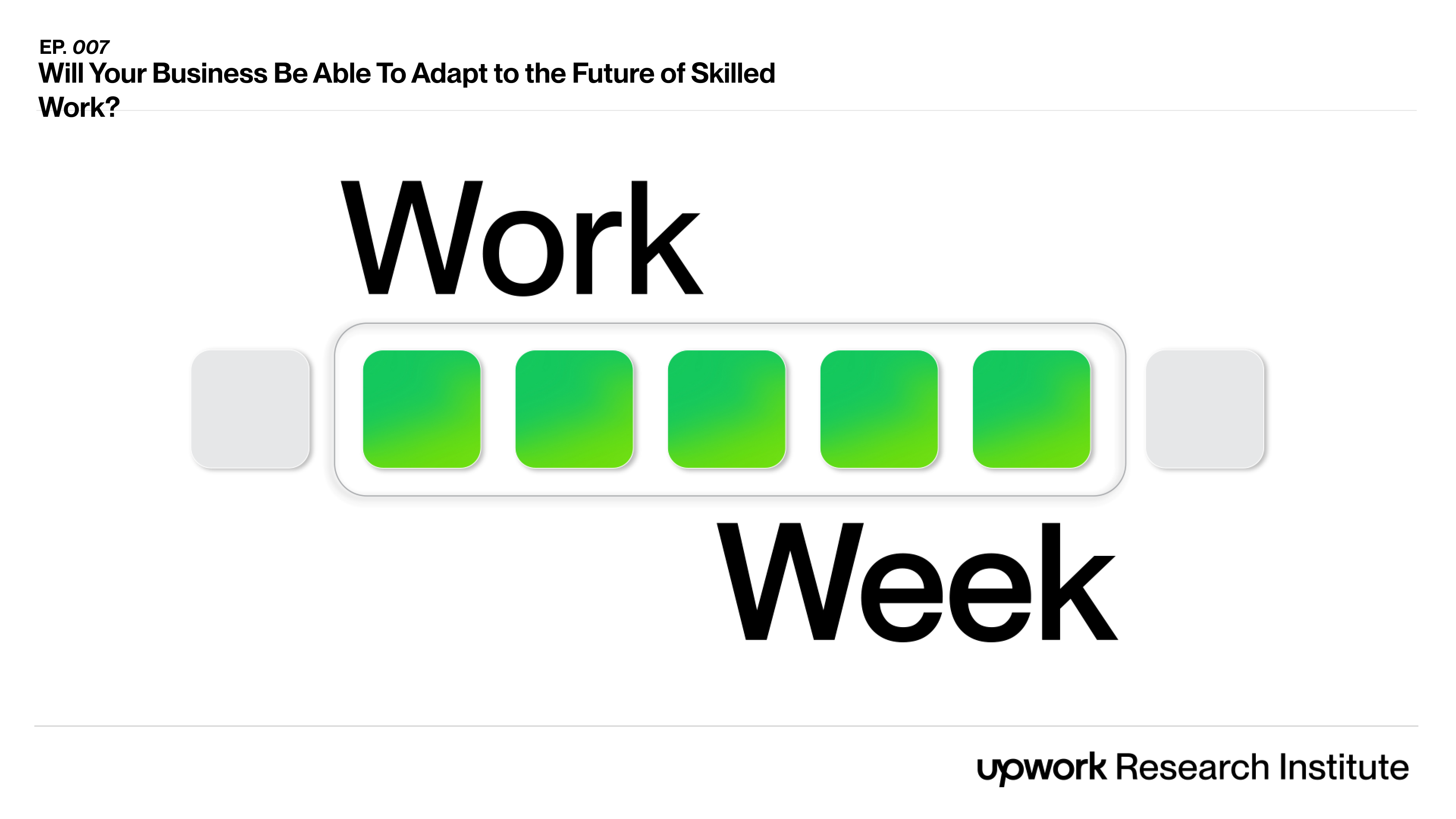
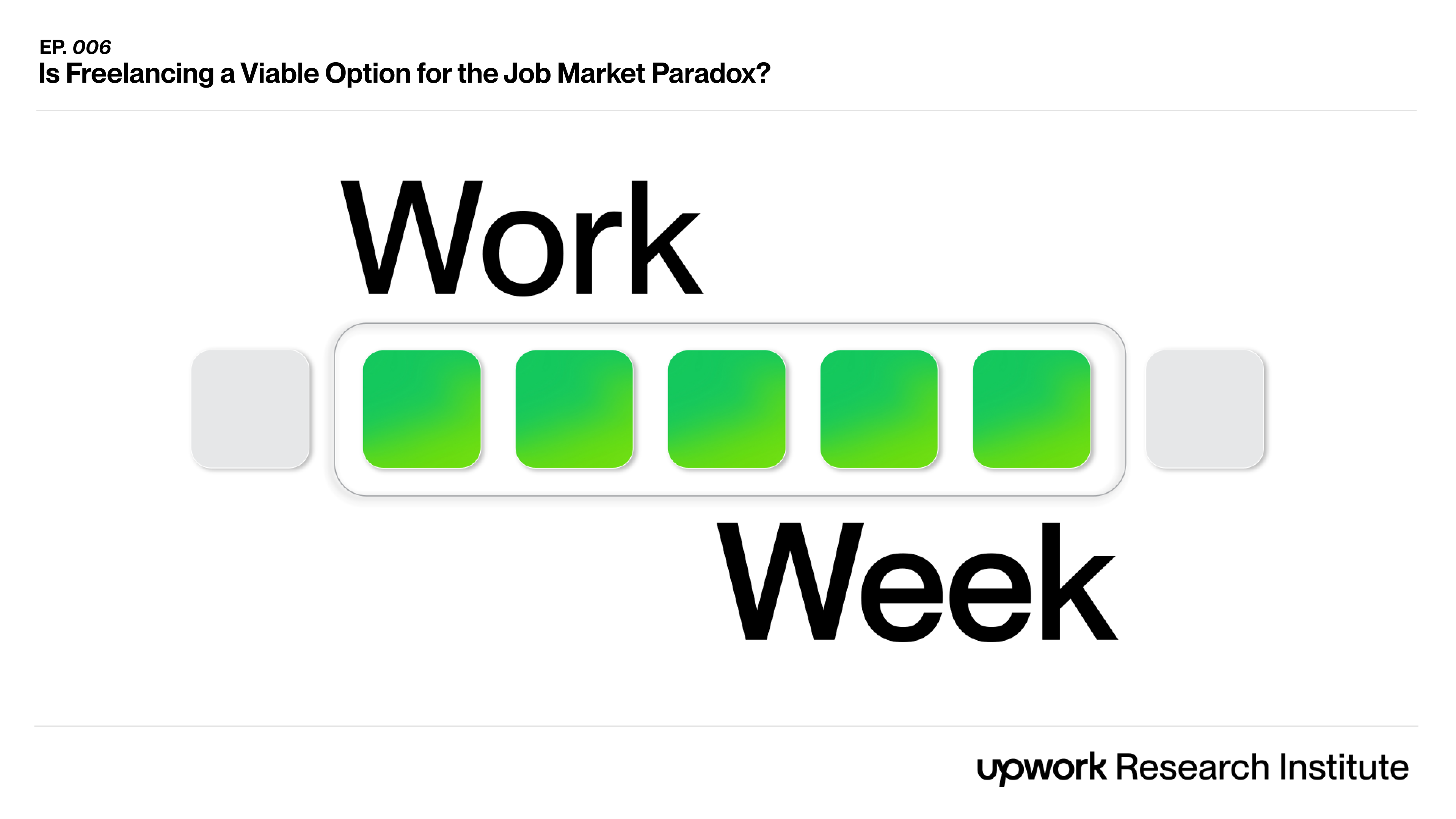
.png)
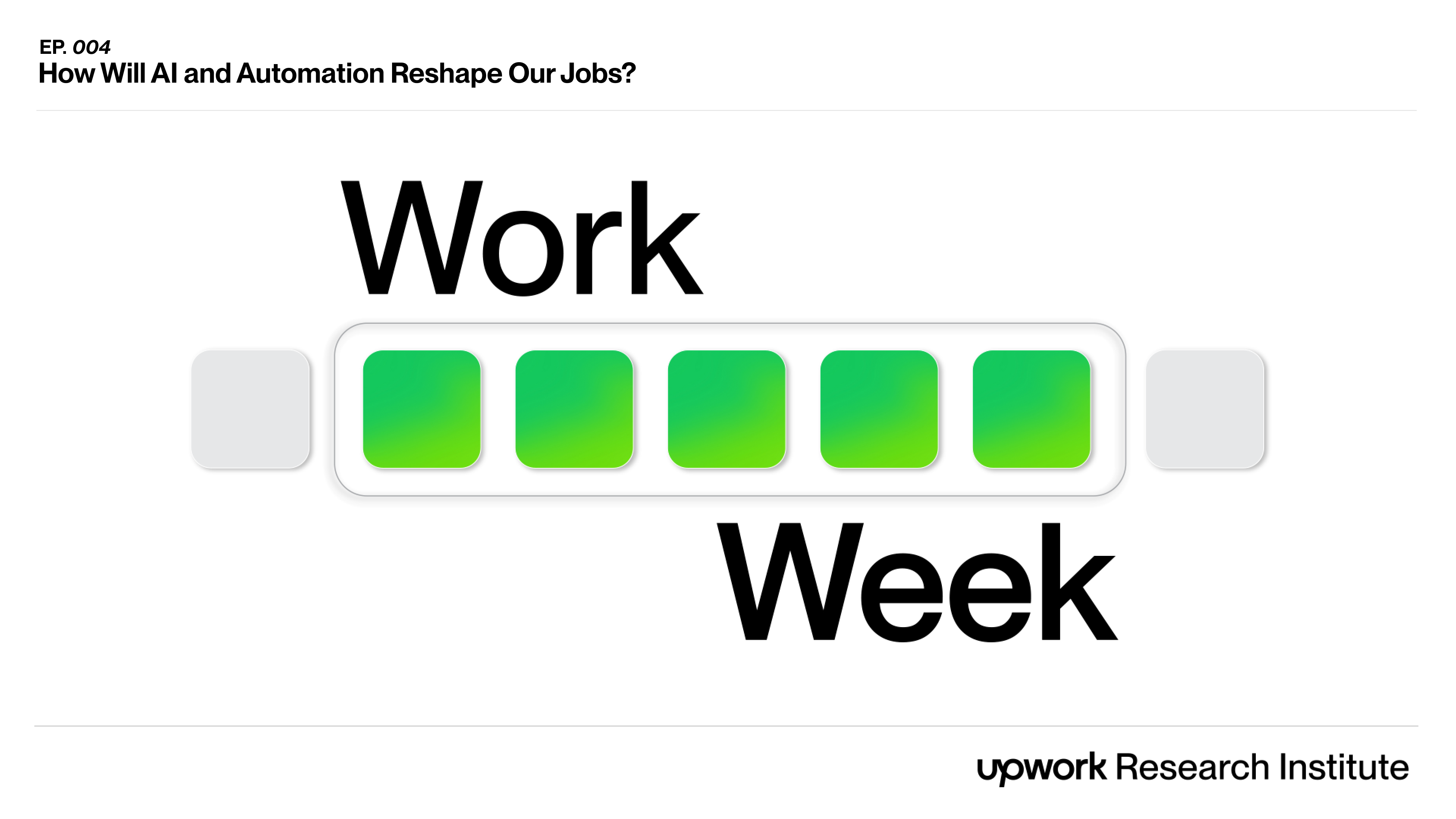

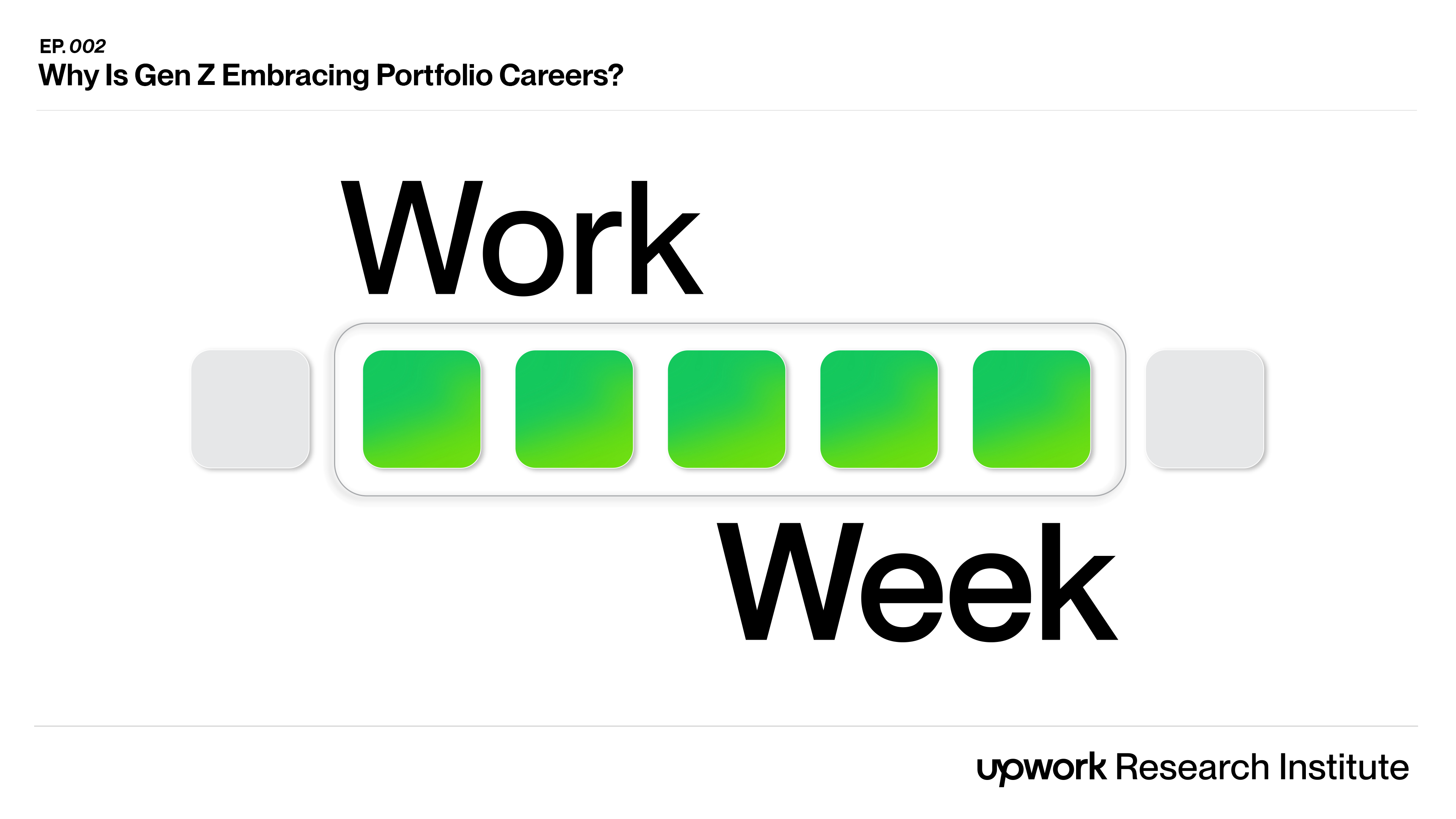
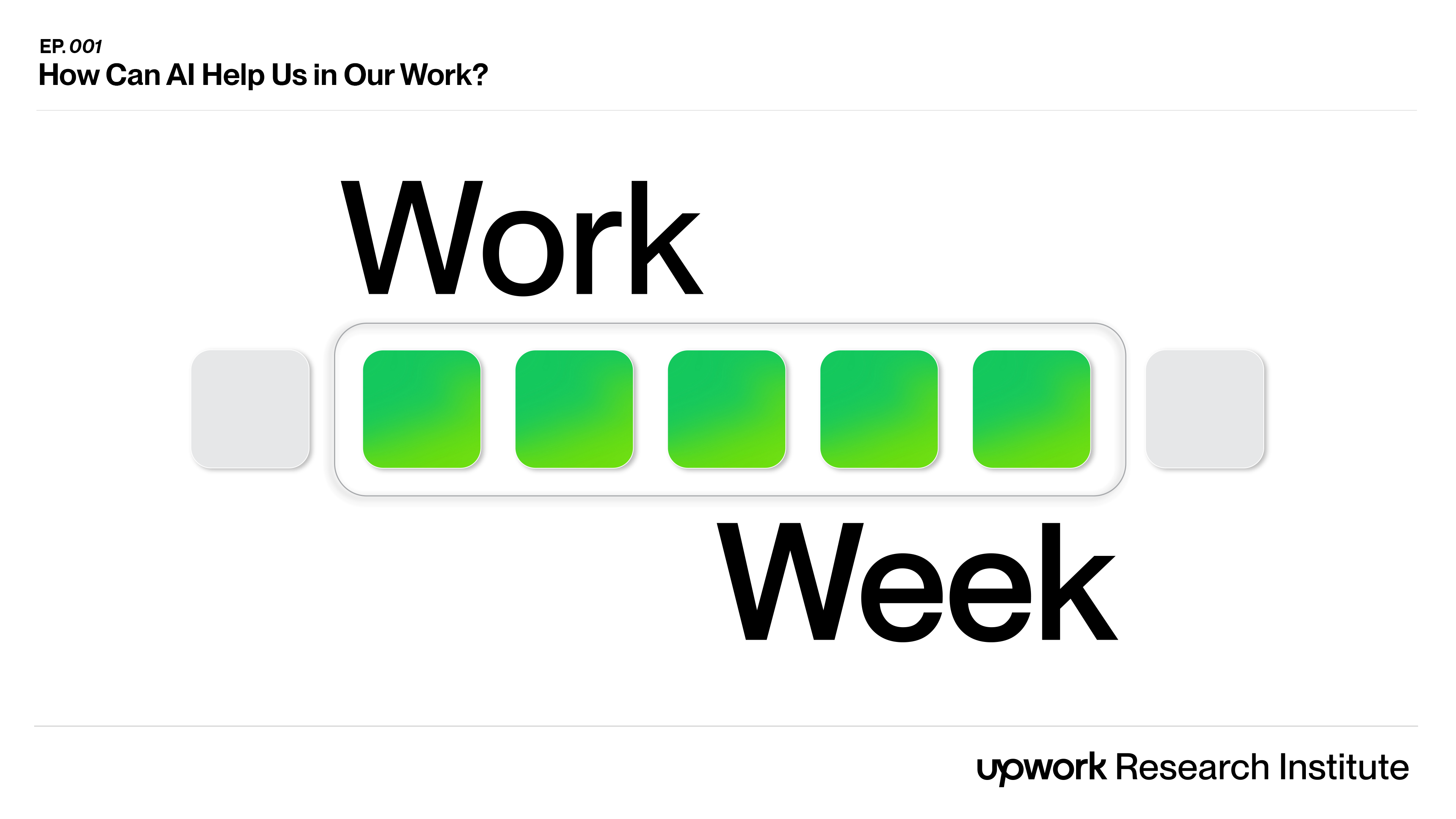
.jpg)